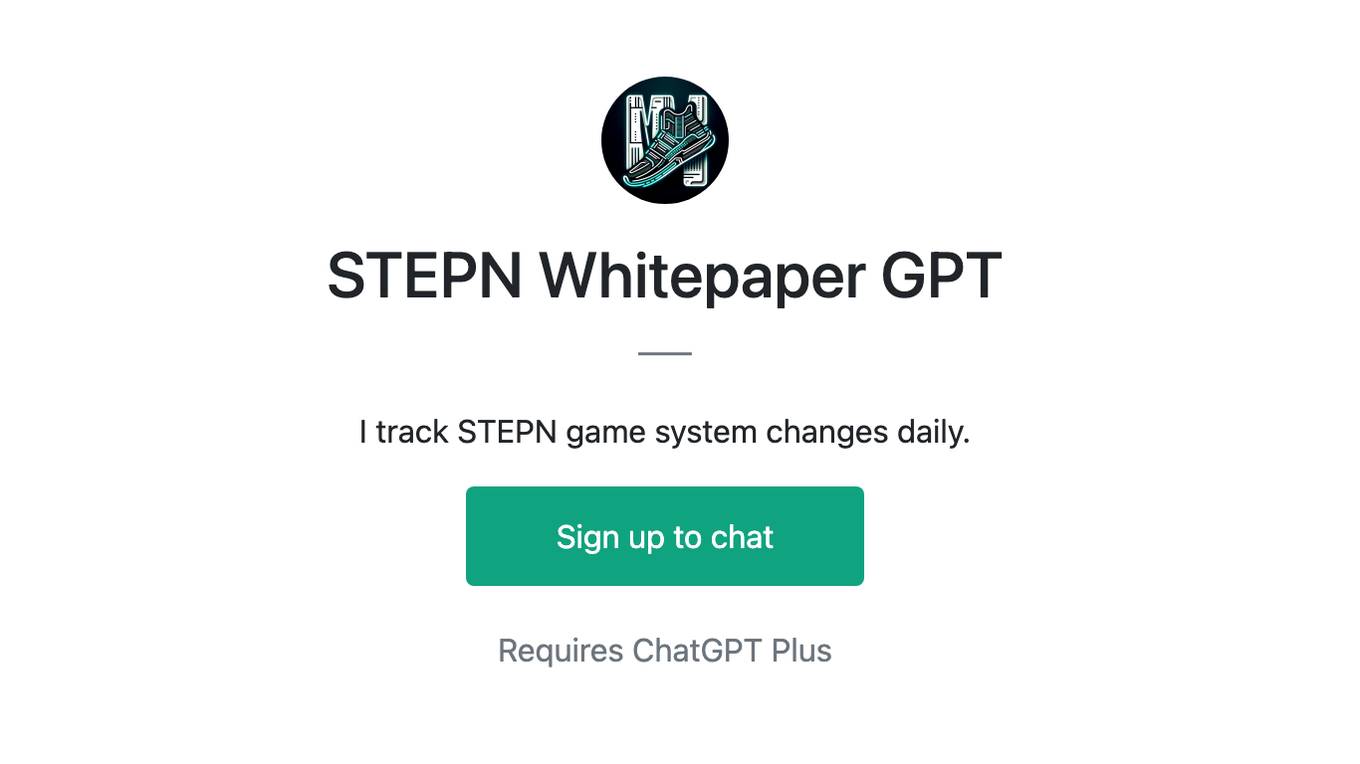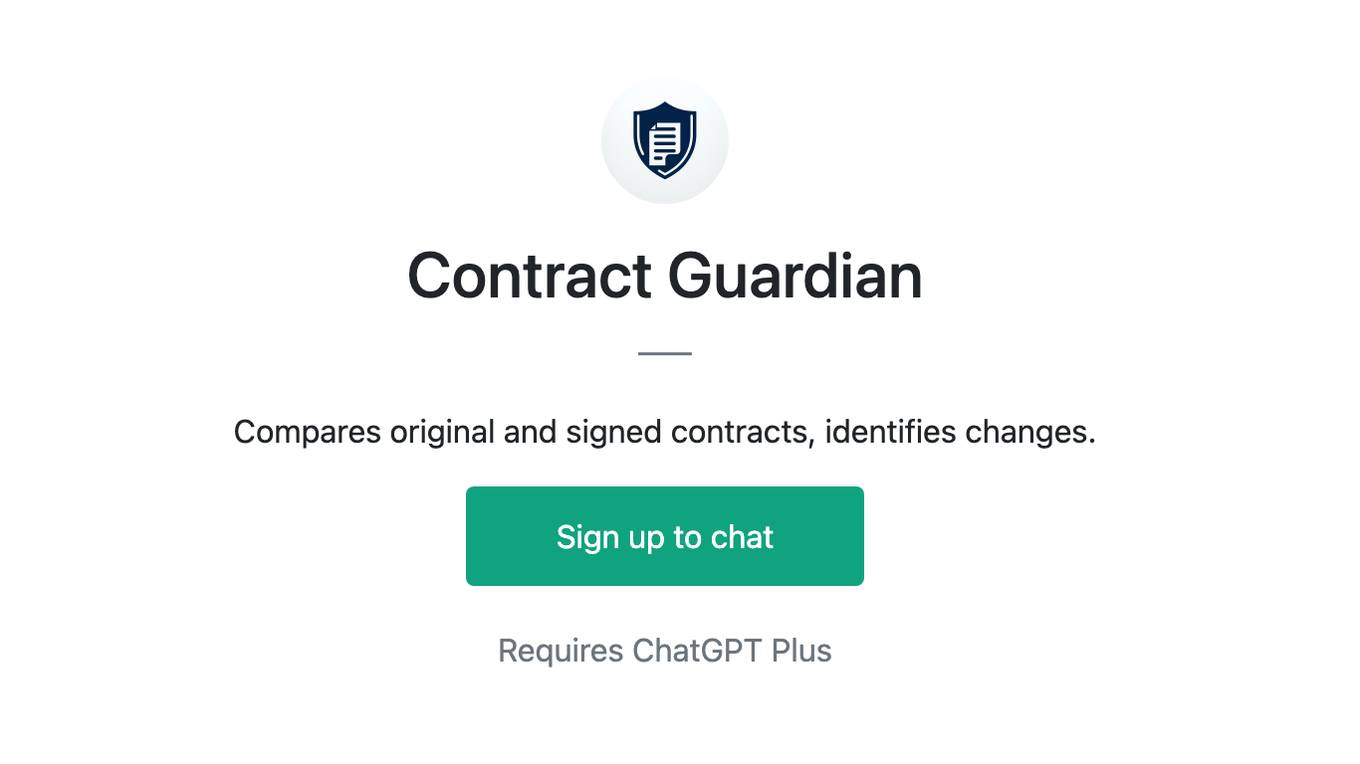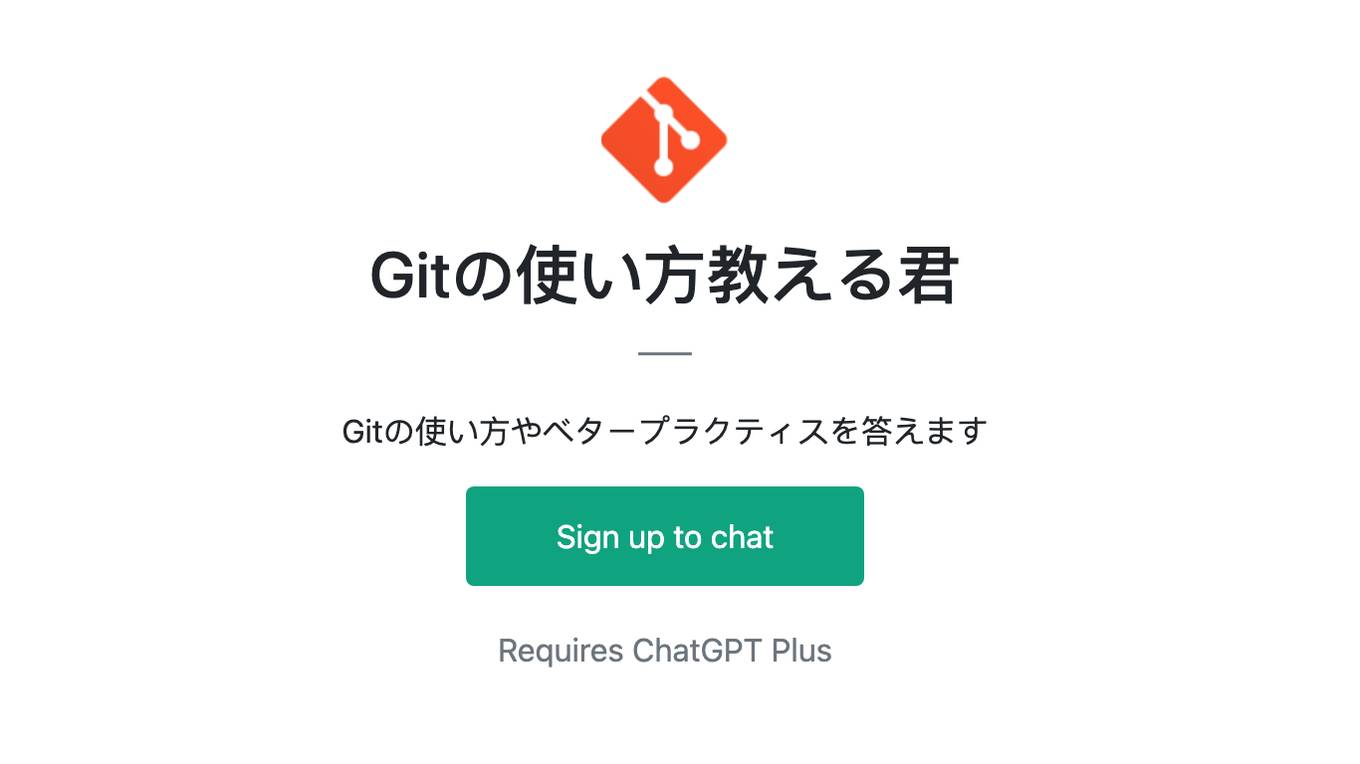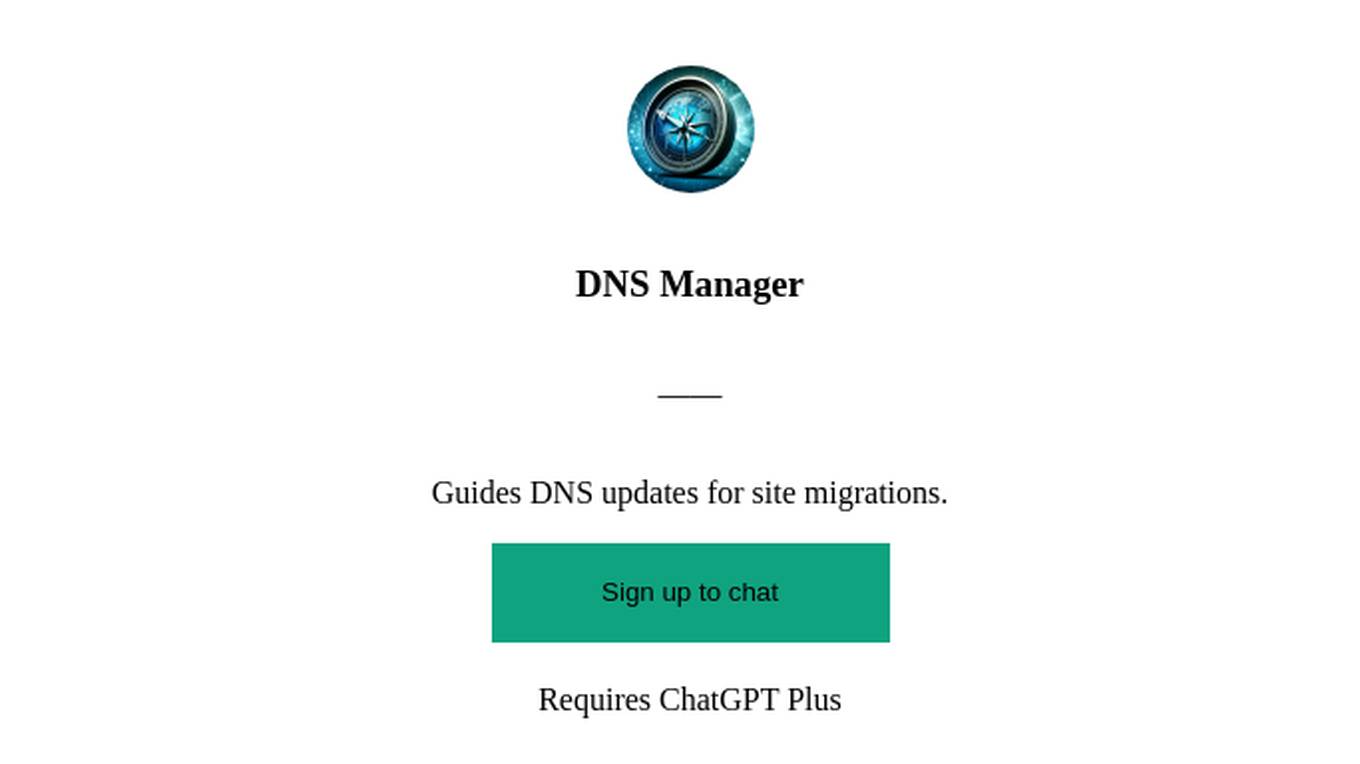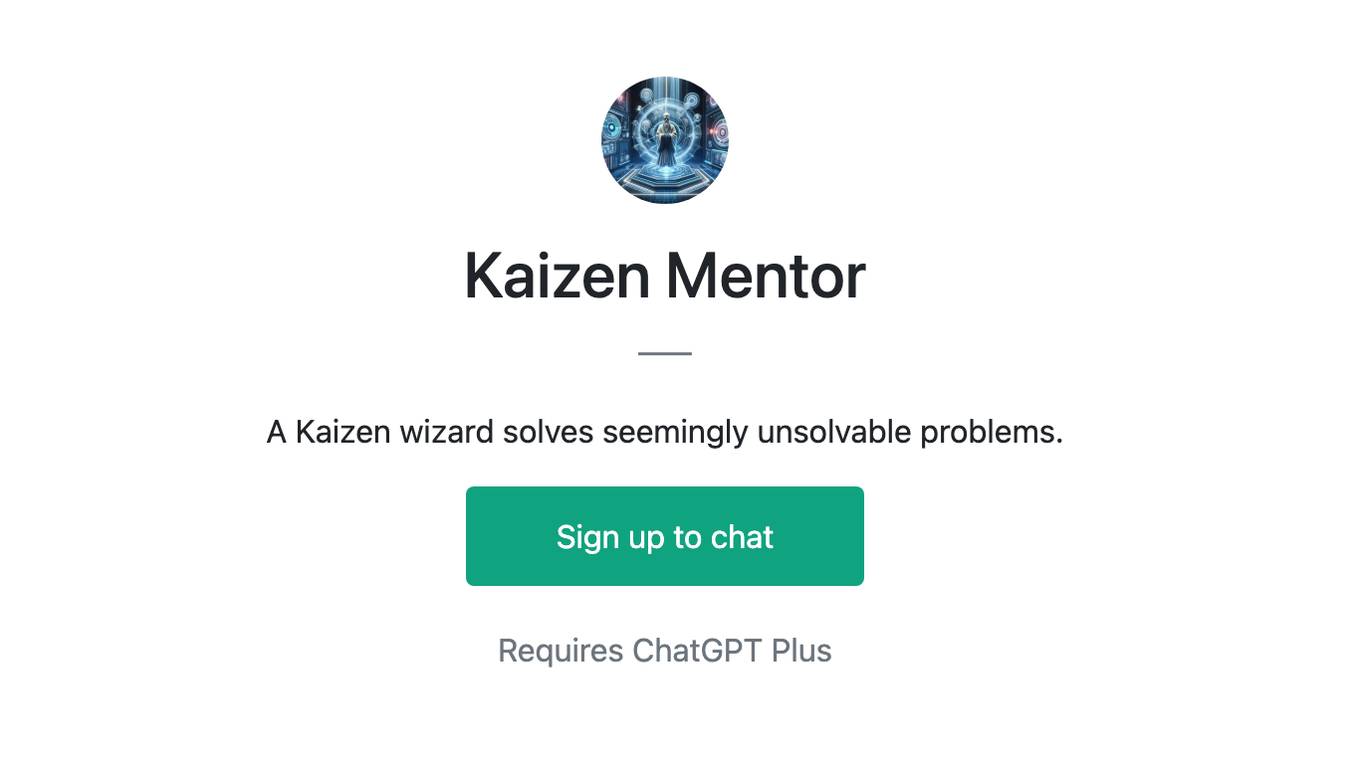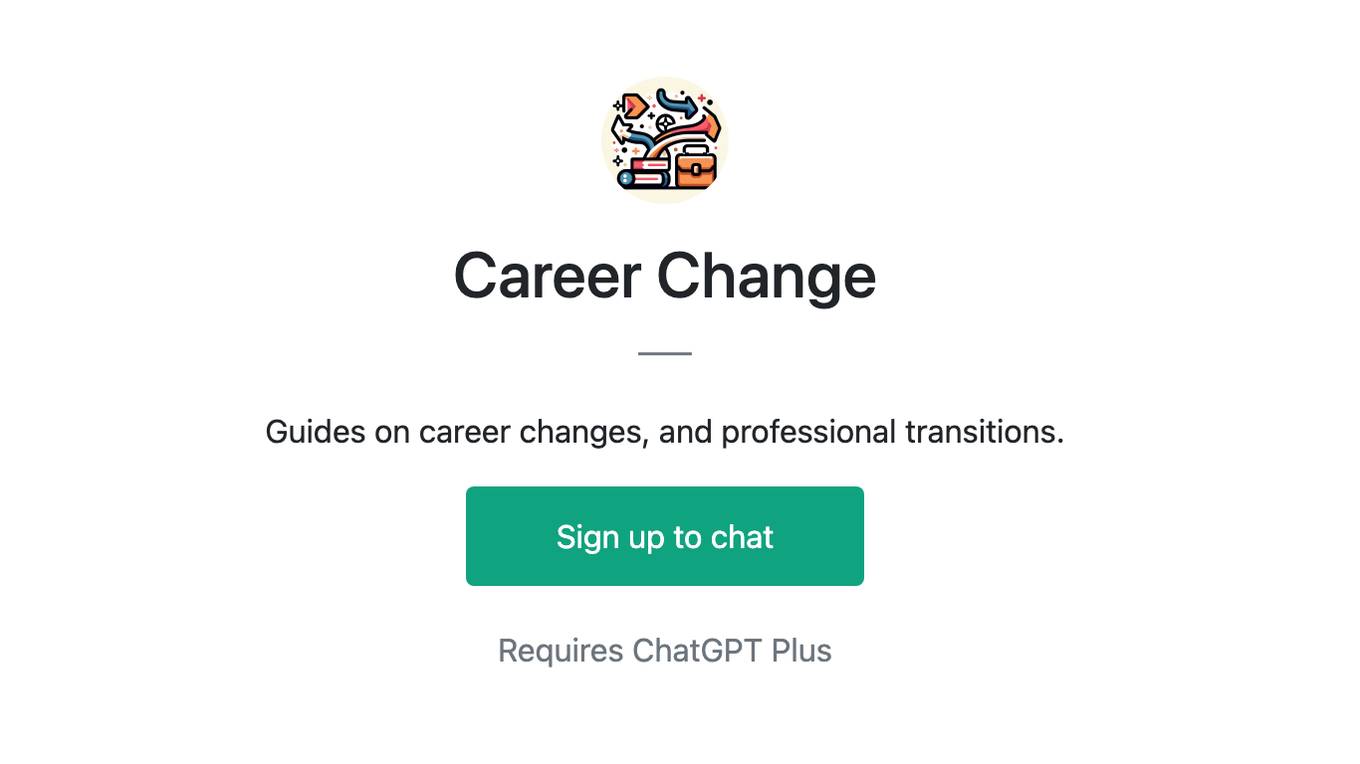Best AI tools for< Manage Changes >
20 - AI tool Sites
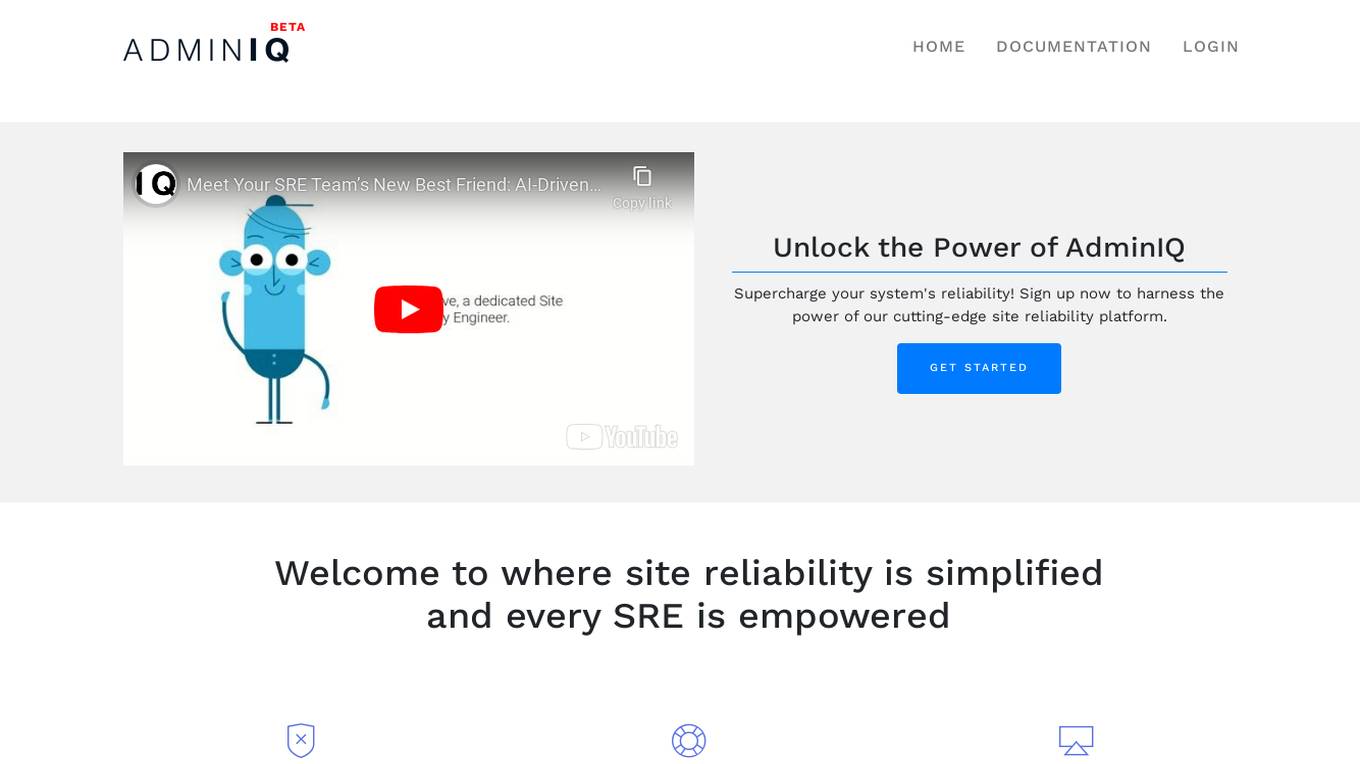
AdminIQ
AdminIQ is an AI-powered site reliability platform that helps businesses improve the reliability and performance of their websites and applications. It uses machine learning to analyze data from various sources, including application logs, metrics, and user behavior, to identify and resolve issues before they impact users. AdminIQ also provides a suite of tools to help businesses automate their site reliability processes, such as incident management, change management, and performance monitoring.
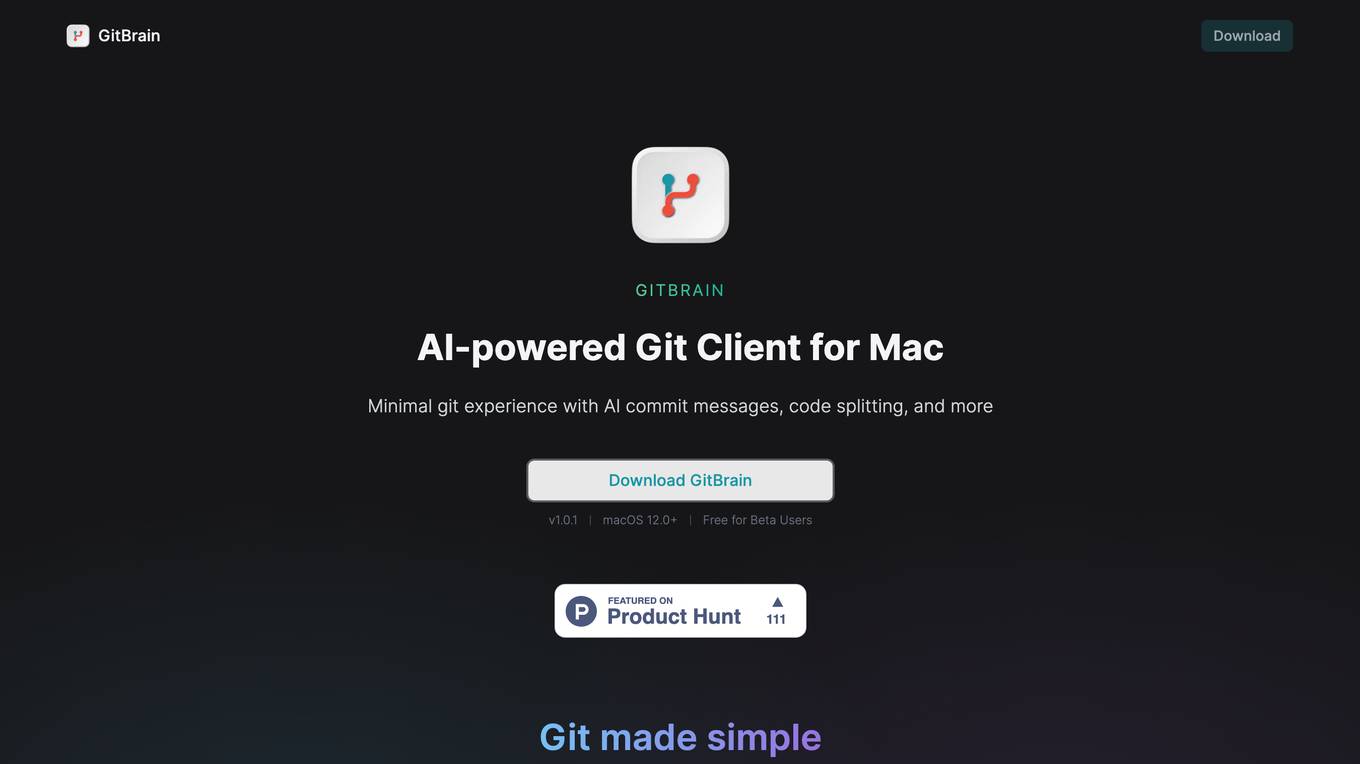
GitBrain
GitBrain is an AI-powered Git client designed for Mac users. It simplifies the Git workflow by offering features such as AI commit messages, code splitting, self code review, auto-detection of projects, and a keyboard-friendly design. The application aims to enhance developer productivity by intelligently managing code changes and providing a seamless Git management experience. GitBrain is optimized for performance on Mac devices, offering a native UI with light and dark mode themes.
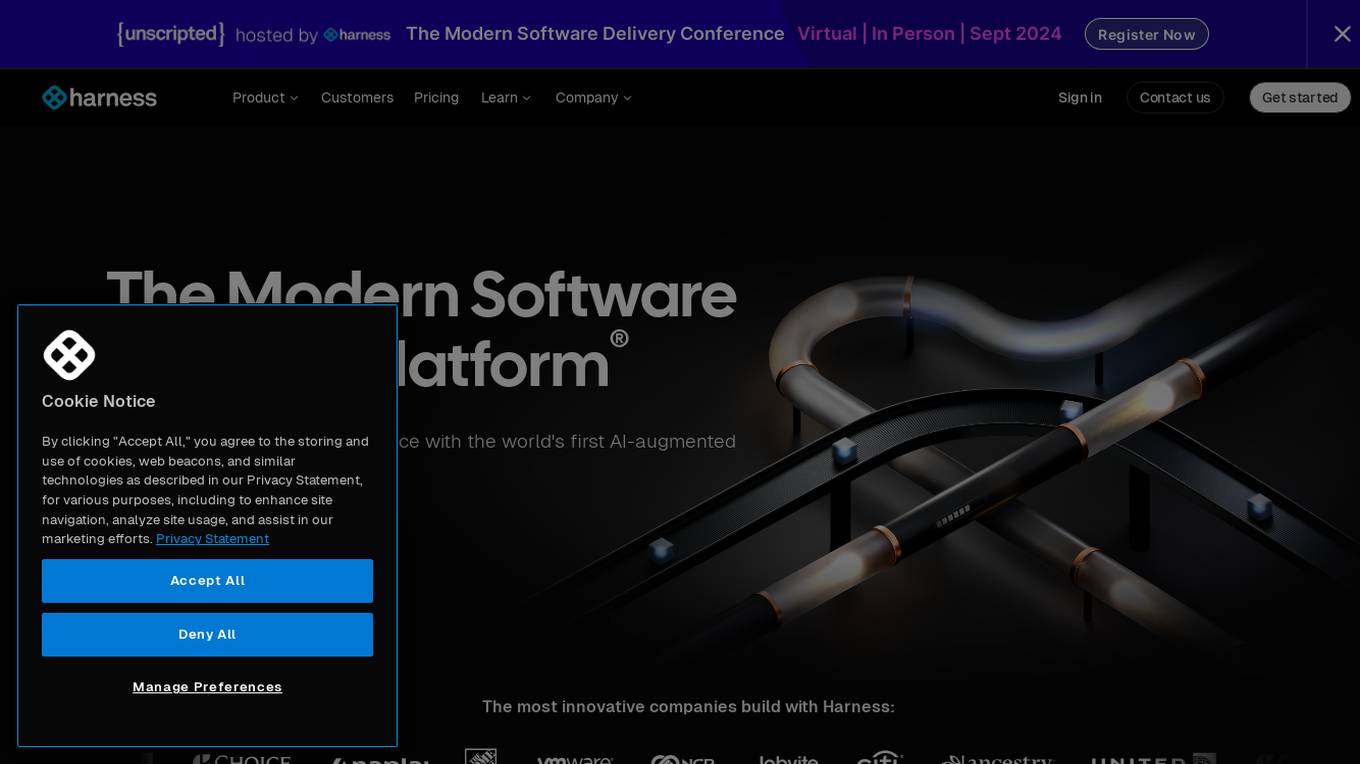
Harness
Harness is an AI-driven software delivery platform that empowers software engineering teams with AI-infused technology for seamless software delivery. It offers a single platform for all software delivery needs, including DevOps modernization, continuous delivery, GitOps, feature flags, infrastructure as code management, chaos engineering, service reliability management, secure software delivery, cloud cost optimization, and more. Harness aims to simplify the developer experience by providing actionable insights on SDLC, secure software supply chain assurance, and AI development assistance throughout the software delivery lifecycle.
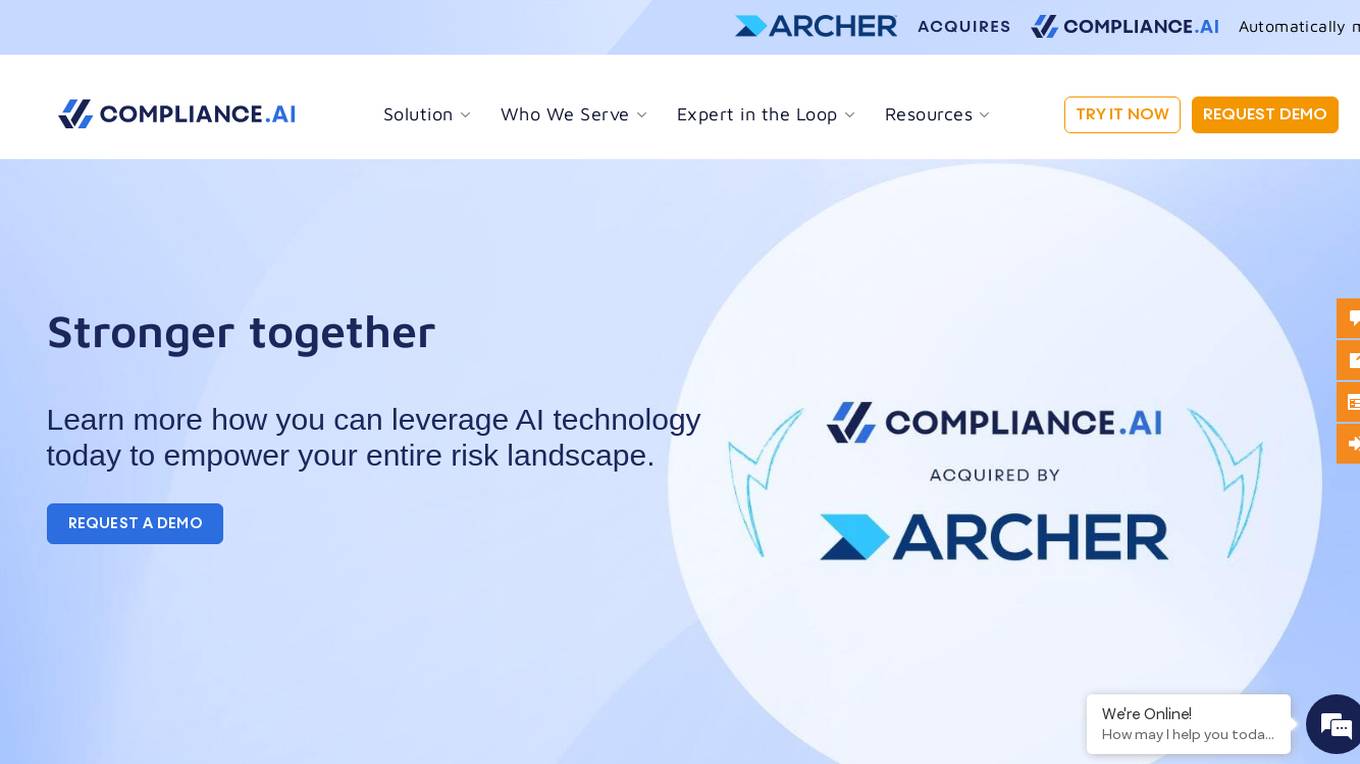
Compliance.ai
Compliance.ai is a regulatory compliance and risk management solution that leverages purpose-built machine learning models to automatically monitor regulatory updates and align them with internal policies, procedures, and controls. The platform ensures timely tracking, reaction, and reporting on impactful regulations and requirements, helping organizations mitigate risks, reduce costs, and increase confidence in compliance status. Compliance.ai offers a comprehensive suite of features and capabilities to streamline regulatory intelligence, impact analysis, change management, audit reporting, enforcement actions management, and more.
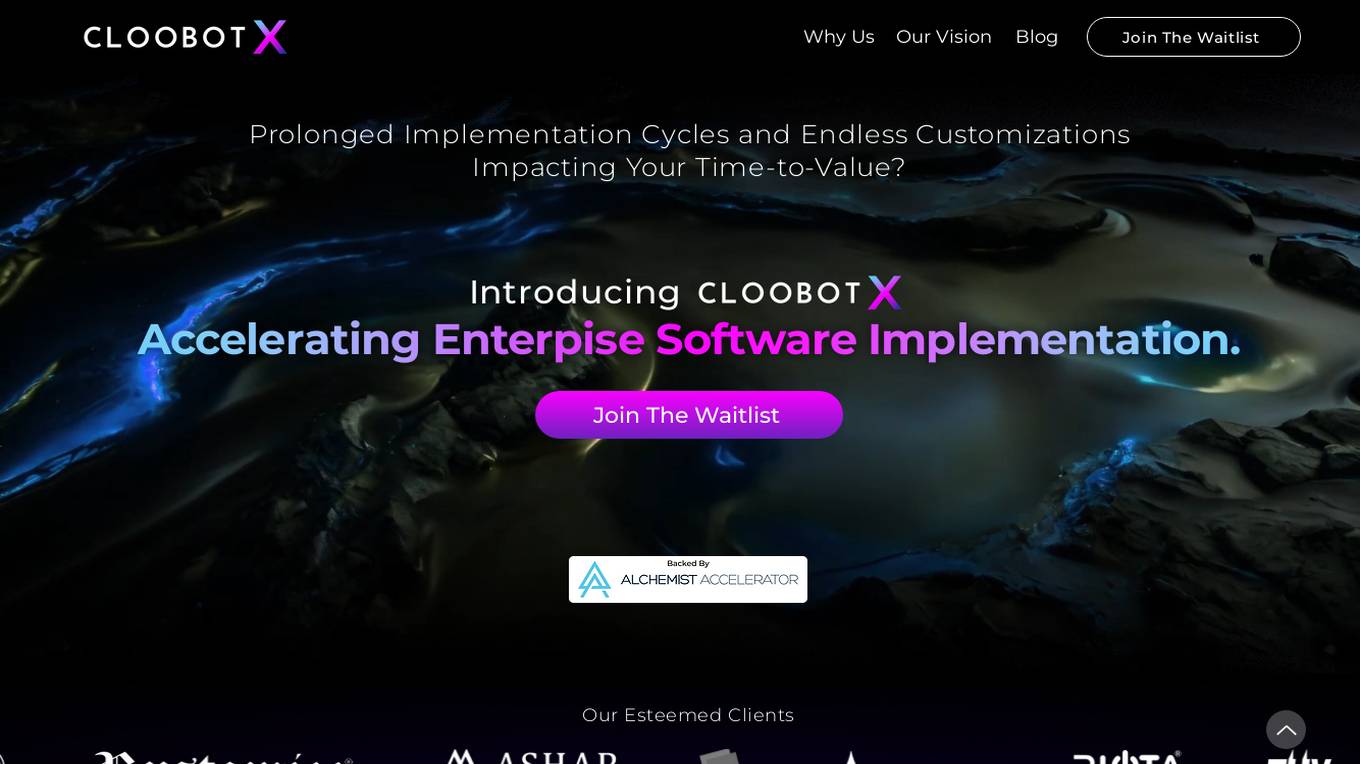
Cloobot X
Cloobot X is a Gen-AI-powered implementation studio that accelerates the deployment of enterprise applications with fewer resources. It leverages natural language processing to model workflow automation, deliver sandbox previews, configure workflows, extend functionalities, and manage versioning & changes. The platform aims to streamline enterprise application deployments, making them simple, swift, and efficient for all stakeholders.
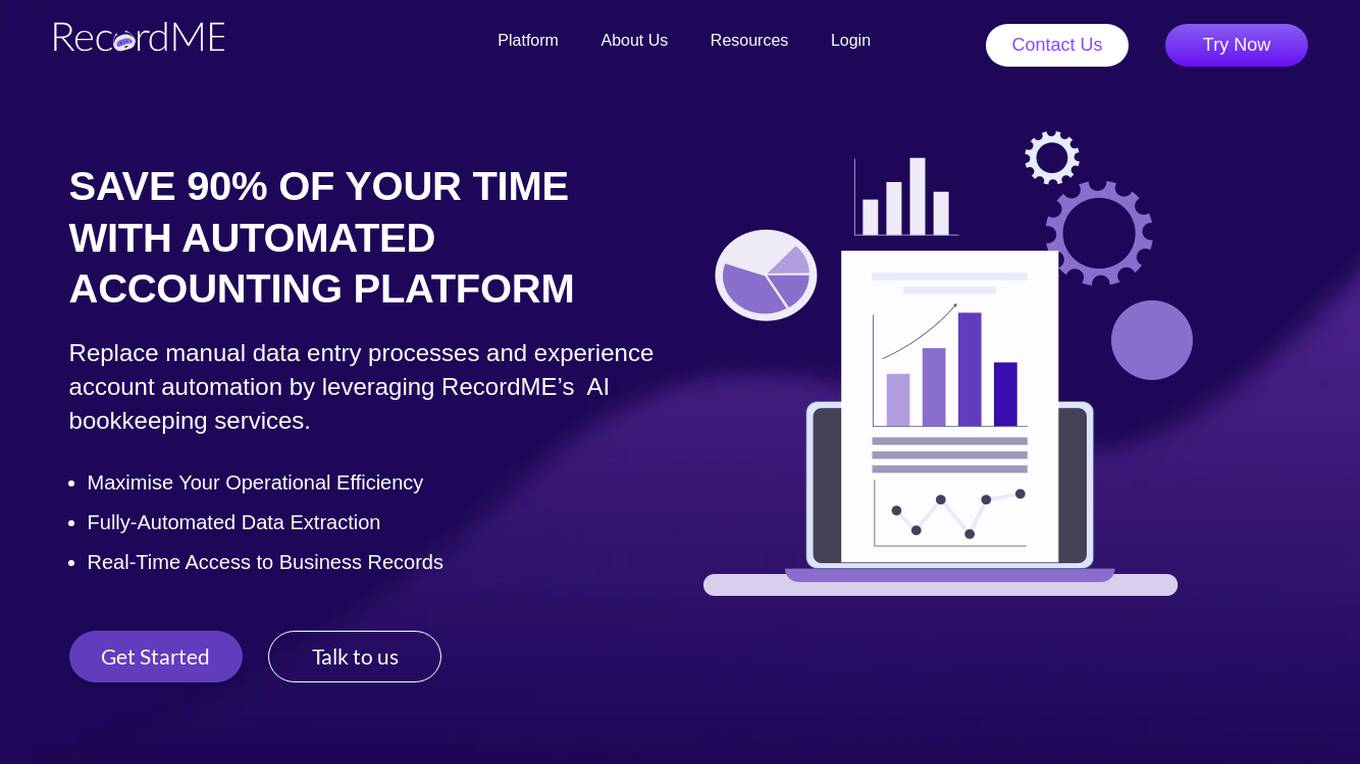
RecordMe
RecordMe is an AI-powered automated accounting and bookkeeping platform that offers fully automated data extraction, real-time access to business records, and streamlined invoice processing. The platform leverages OCR technology to extract and categorize accounting data efficiently, providing users with valuable data insights. RecordMe aims to maximize operational efficiency, eliminate manual data entry processes, and empower businesses to automate accounting and bookkeeping through a simple drag-and-drop process.
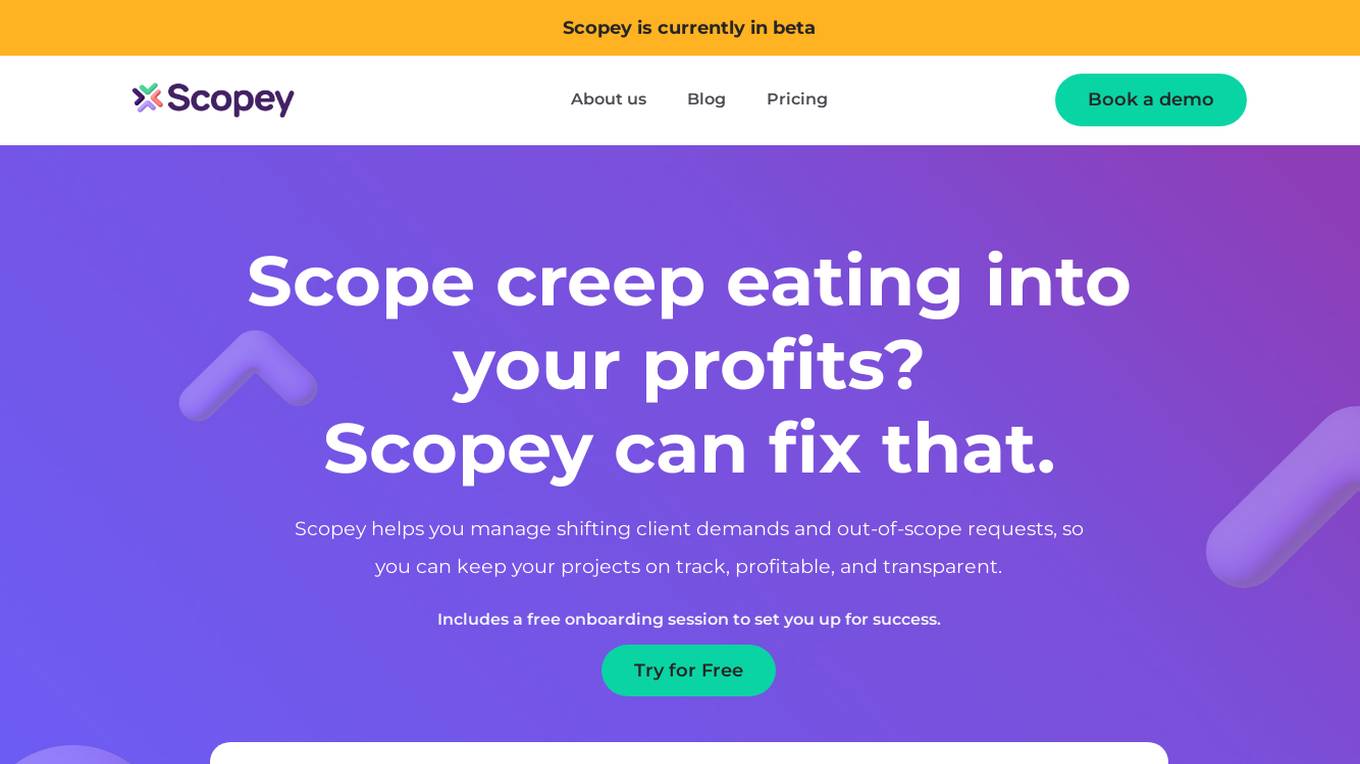
Scopey
Scopey is an AI-powered scope management tool designed to help businesses manage shifting client demands and prevent scope creep. It offers real-time tracking of project changes, detailed scopes of work creation, seamless integration with team workflows, and upselling opportunities. Scopey aims to save time, increase revenue, ensure transparency, stop scope creep, and boost project success effortlessly.
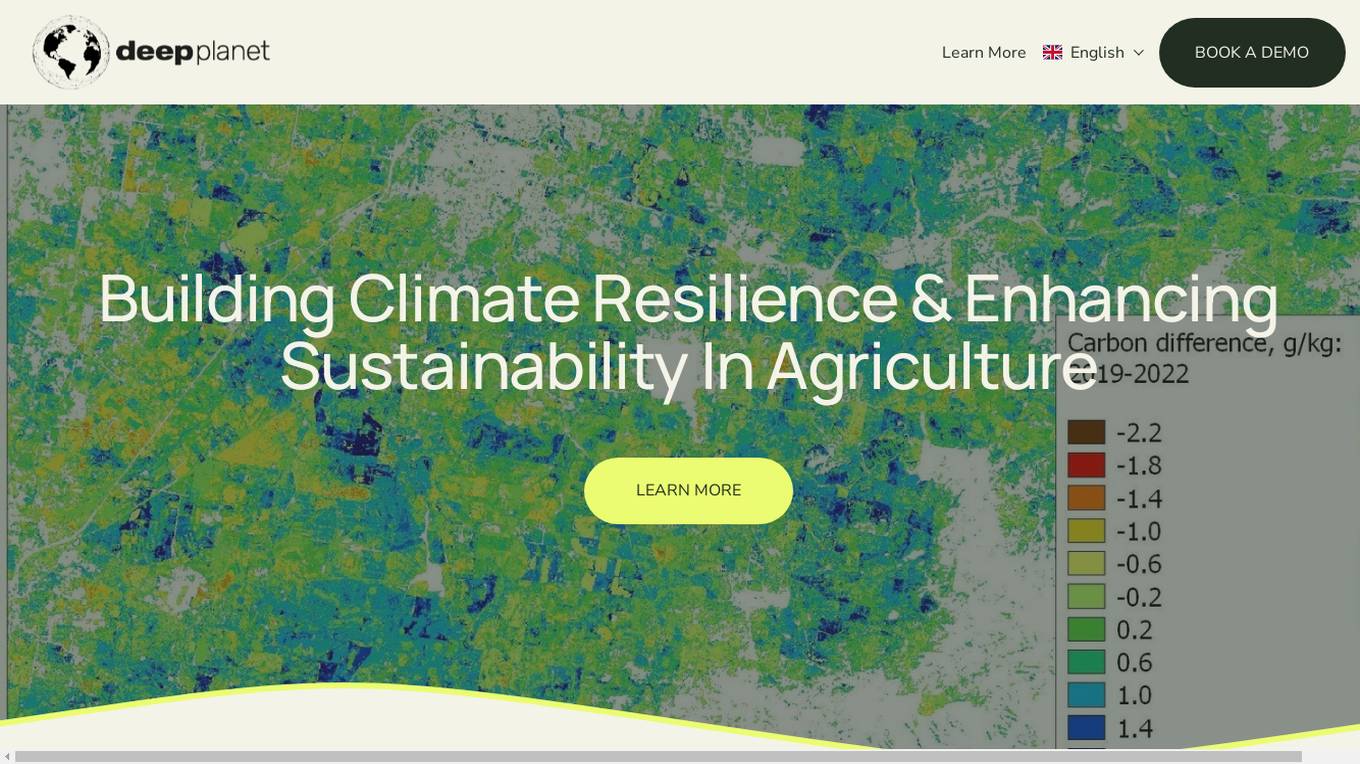
Deep Planet
Deep Planet is a precision viticulture platform powered by AI that focuses on enhancing sustainability in agriculture. It offers solutions for the wine industry, landowners, farmers, and supply chain companies by providing data-driven insights to maximize potential, optimize nutrient application, and support the transition to achieve net zero targets. The platform leverages AI and satellite imagery to empower users with actionable intelligence for better decision-making in vineyard management and soil health.
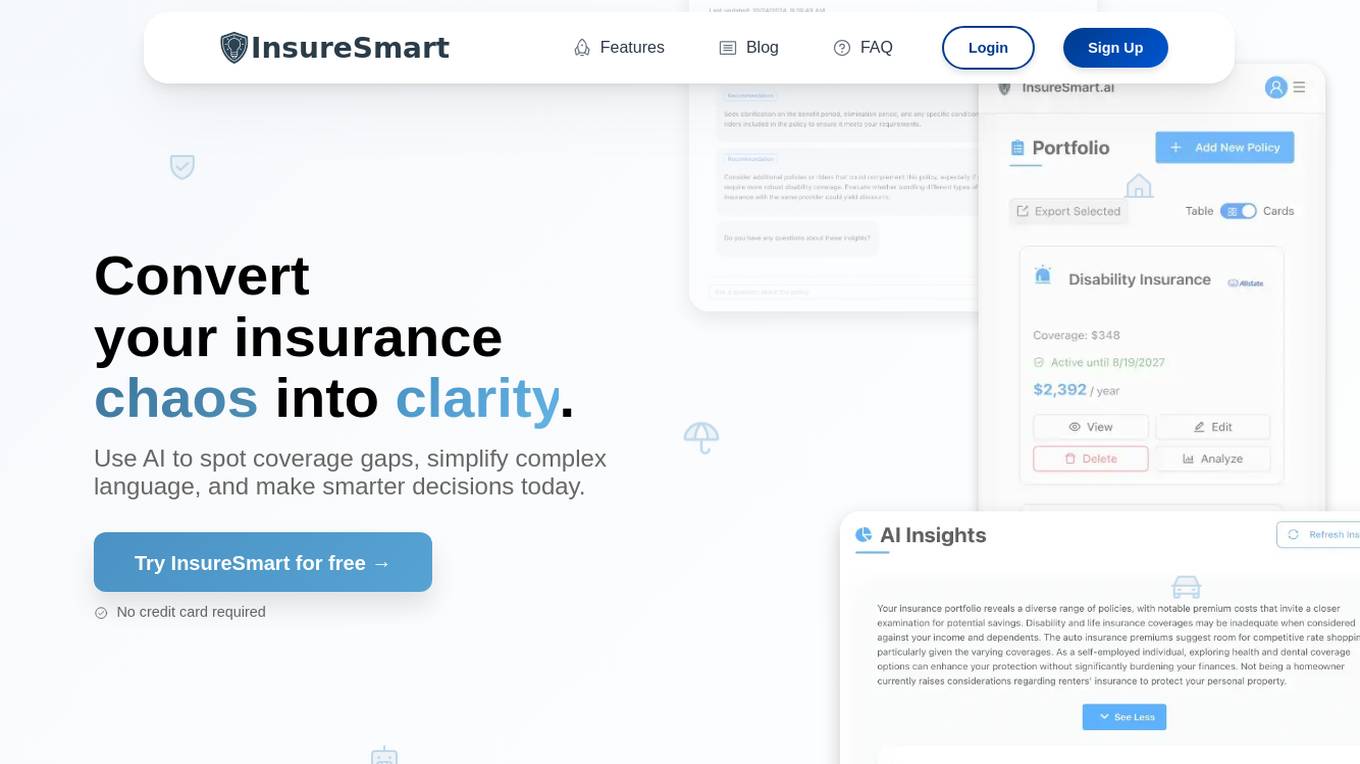
InsureSmart
InsureSmart is an AI-powered platform that empowers users to take control of their insurance needs. By leveraging artificial intelligence technology, InsureSmart offers personalized insurance solutions tailored to individual requirements. The platform provides a seamless and user-friendly experience for users to manage and optimize their insurance policies efficiently. With InsureSmart, users can access smart recommendations, compare insurance plans, and make informed decisions to secure their financial well-being.
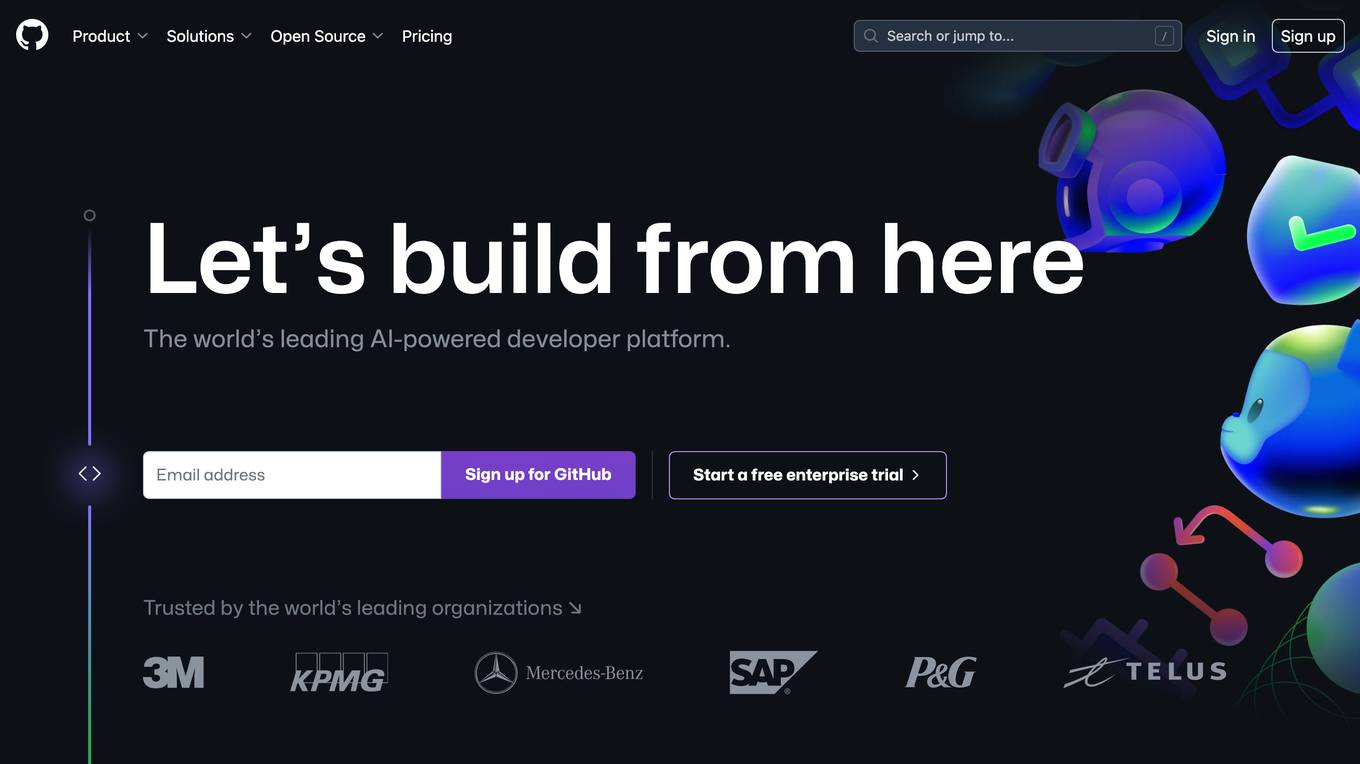
GitHub
GitHub is a collaborative platform that allows users to build and ship software efficiently. GitHub Copilot, an AI-powered tool, helps developers write better code by providing coding assistance, automating workflows, and enhancing security. The platform offers features such as instant dev environments, code review, code search, and collaboration tools. GitHub is widely used by enterprises, small and medium teams, startups, and nonprofits across various industries. It aims to simplify the development process, increase productivity, and improve the overall developer experience.
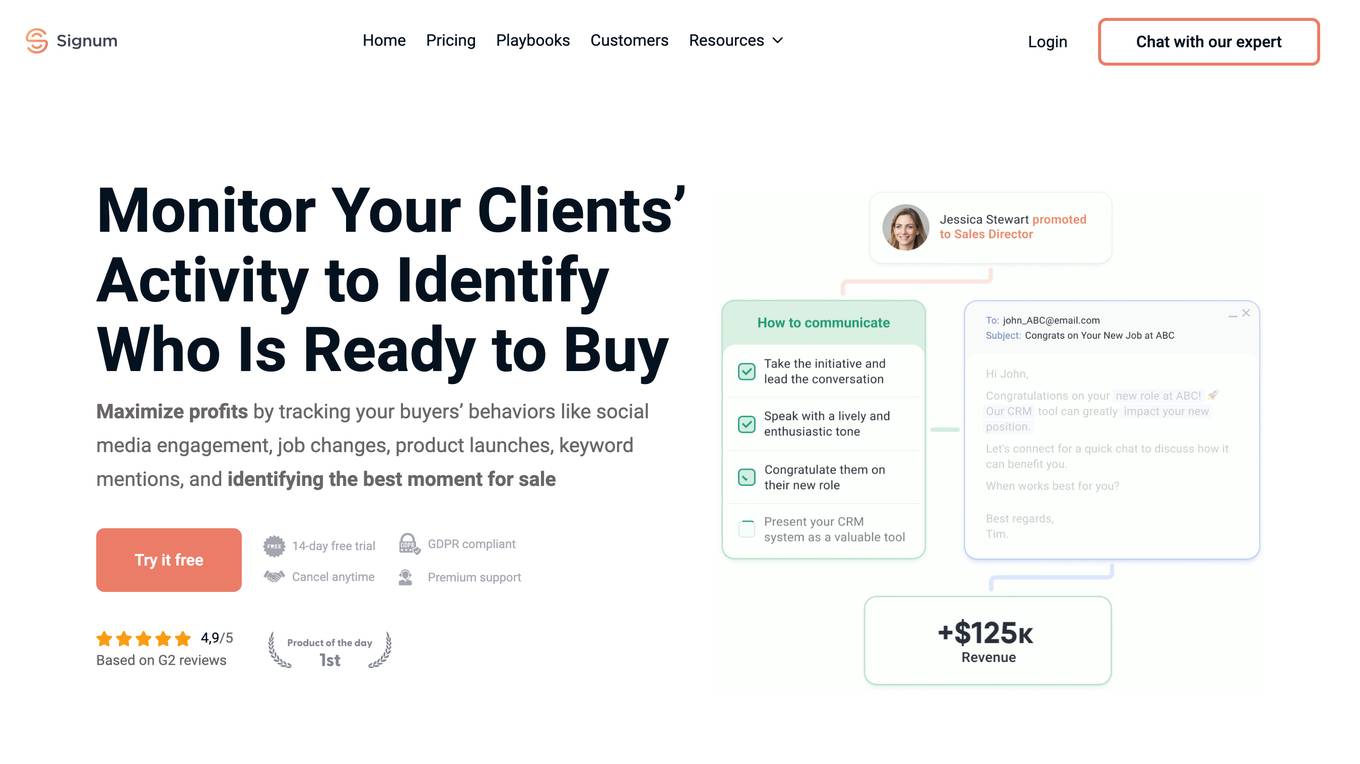
Signum.AI
Signum.AI is a sales intelligence platform that uses artificial intelligence (AI) to help businesses identify customers who are ready to buy. The platform tracks key customer behaviors, such as social media engagement, job changes, product launches, and keyword mentions, to identify the best time to reach out to them. Signum.AI also provides personalized recommendations on how to approach each customer, based on their individual needs and interests.
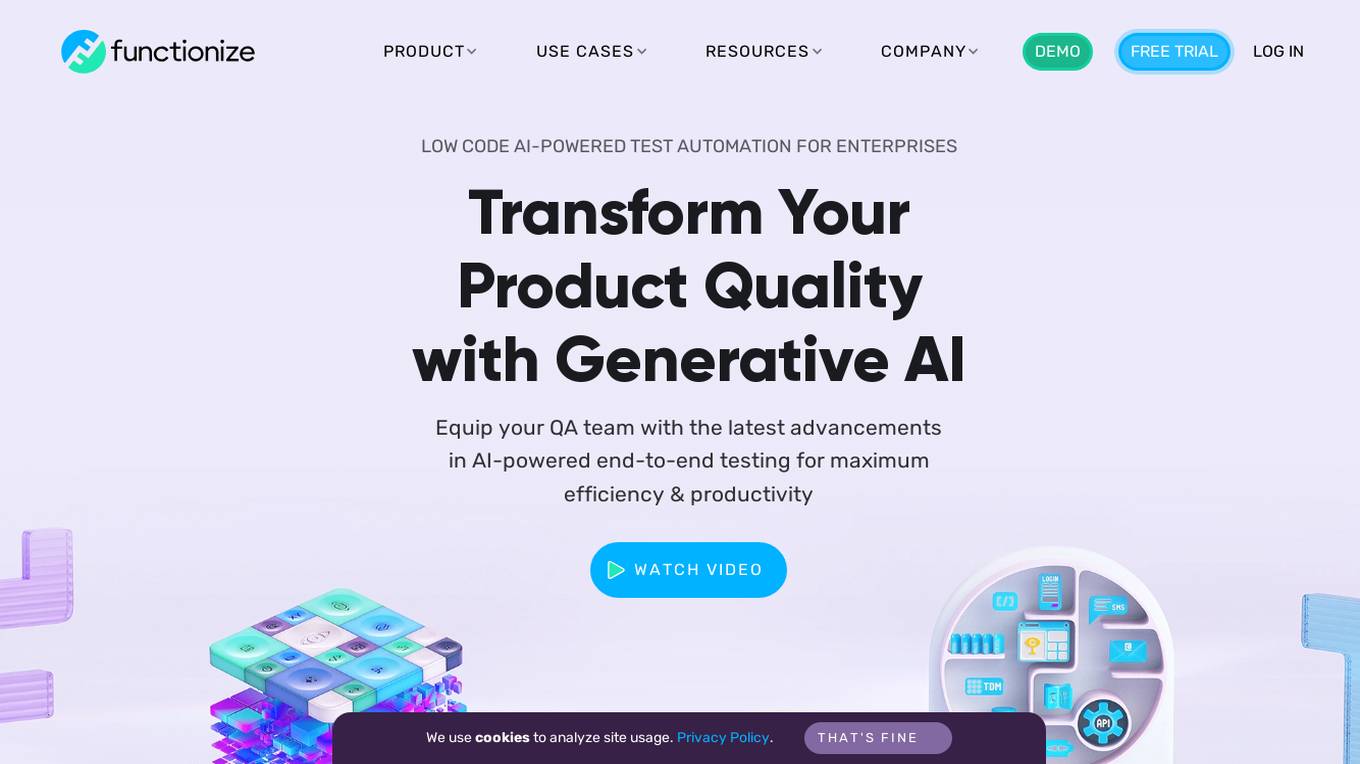
Functionize
Functionize is an AI-powered test automation platform that helps enterprises improve their product quality and release faster. It uses machine learning to automate test creation, maintenance, and execution, and provides a range of features to help teams collaborate and manage their testing process. Functionize integrates with popular CI/CD tools and DevOps pipelines, and offers a range of pricing options to suit different needs.
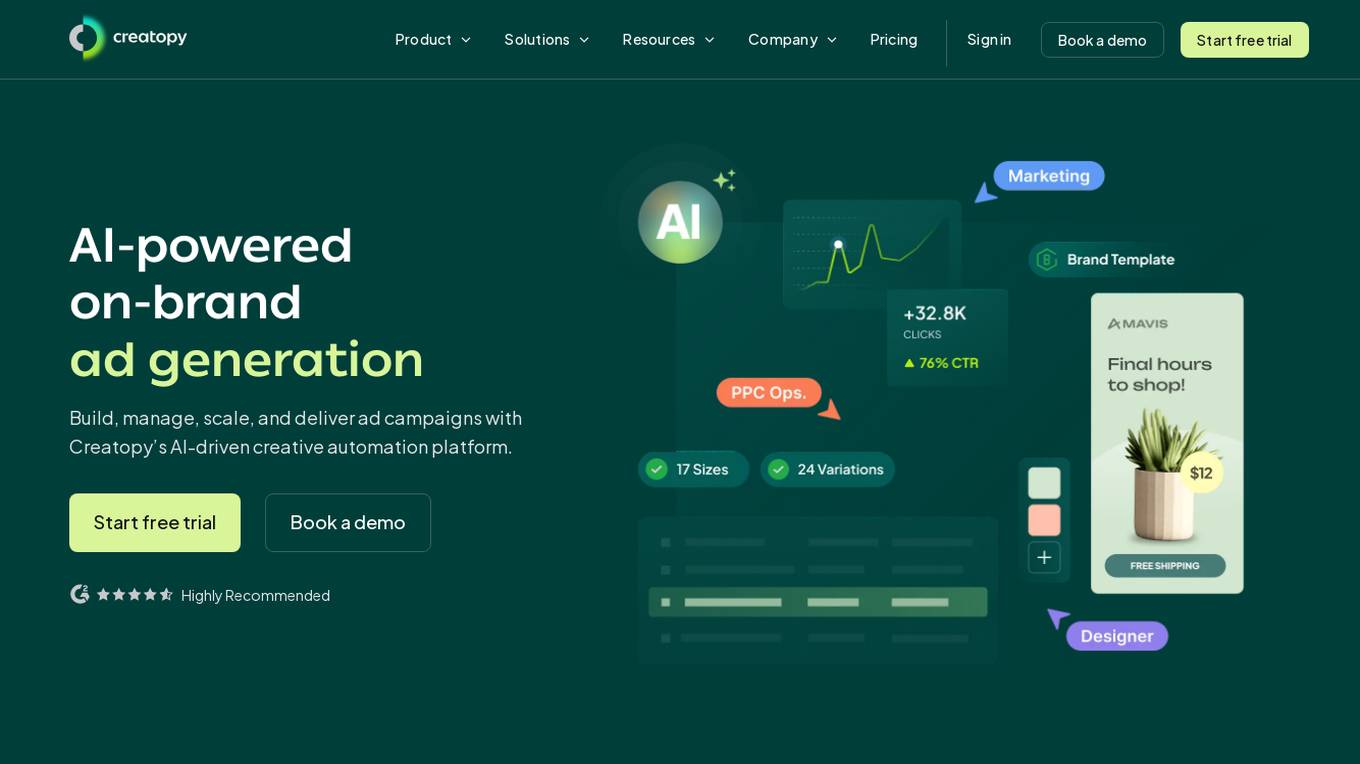
Creatopy
Creatopy is an AI-powered creative automation platform that enables users to design, manage, scale, and deliver ad campaigns efficiently. With features like AI-powered ad generation, on-brand templates, multi-design changes, and real-time updates, Creatopy streamlines the creative production process for businesses of all sizes. The platform offers tools for templating, organizing multiple brands, generating ads at scale, and optimizing creative performance. Creatopy helps users accelerate ad creation using AI-powered workflows, such as generating ads from URLs, translating ad copy into multiple languages, and creating winning ad creatives with the AI banner generator.
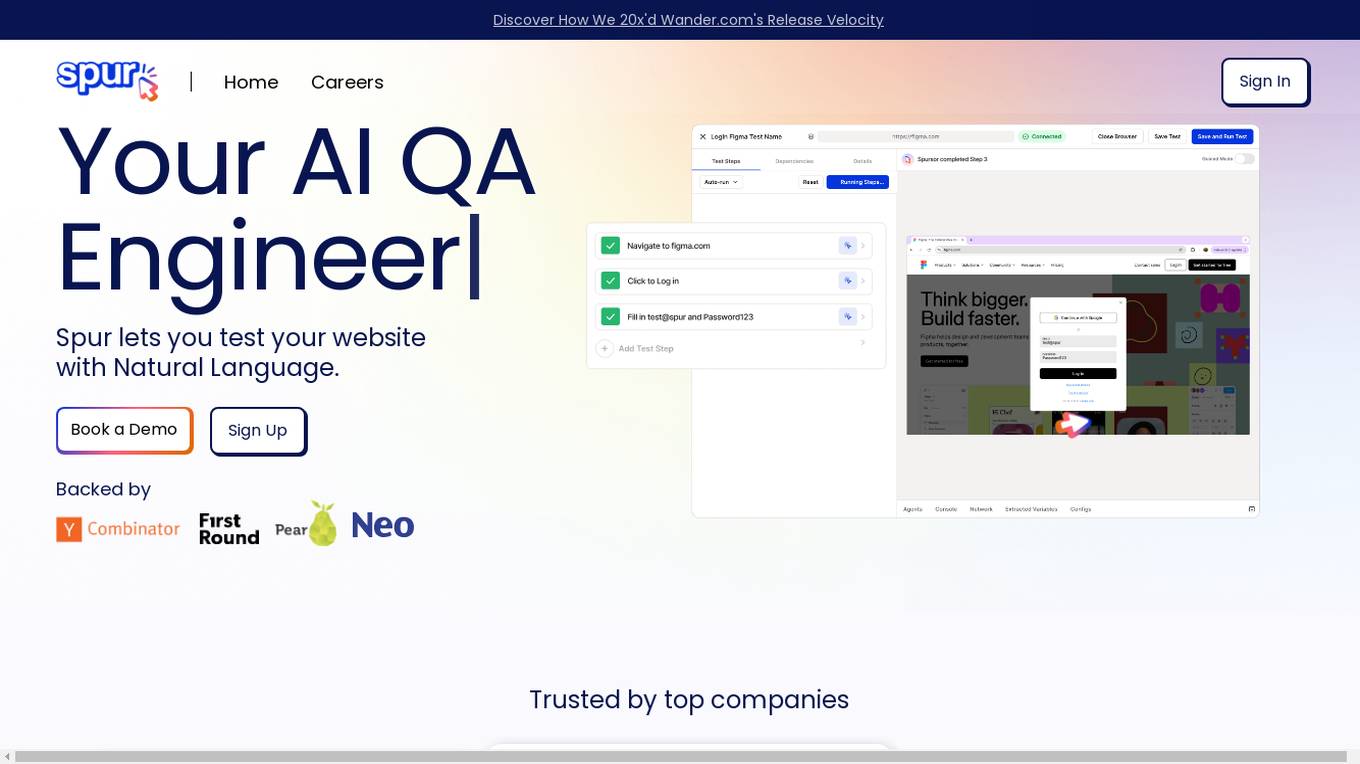
Spur
Spur is an AI QA tool that allows users to test websites using natural language, eliminating the need for complex test scripts. It offers reliable automated tests that adapt to UI changes, real-time playback for debugging, and powerful validations. Spur's AI-powered tests reduce manual testing time, improve software testing processes, and ensure the reliability of tests even with site changes. The tool is user-friendly, requires no coding skills, and supports API testing.
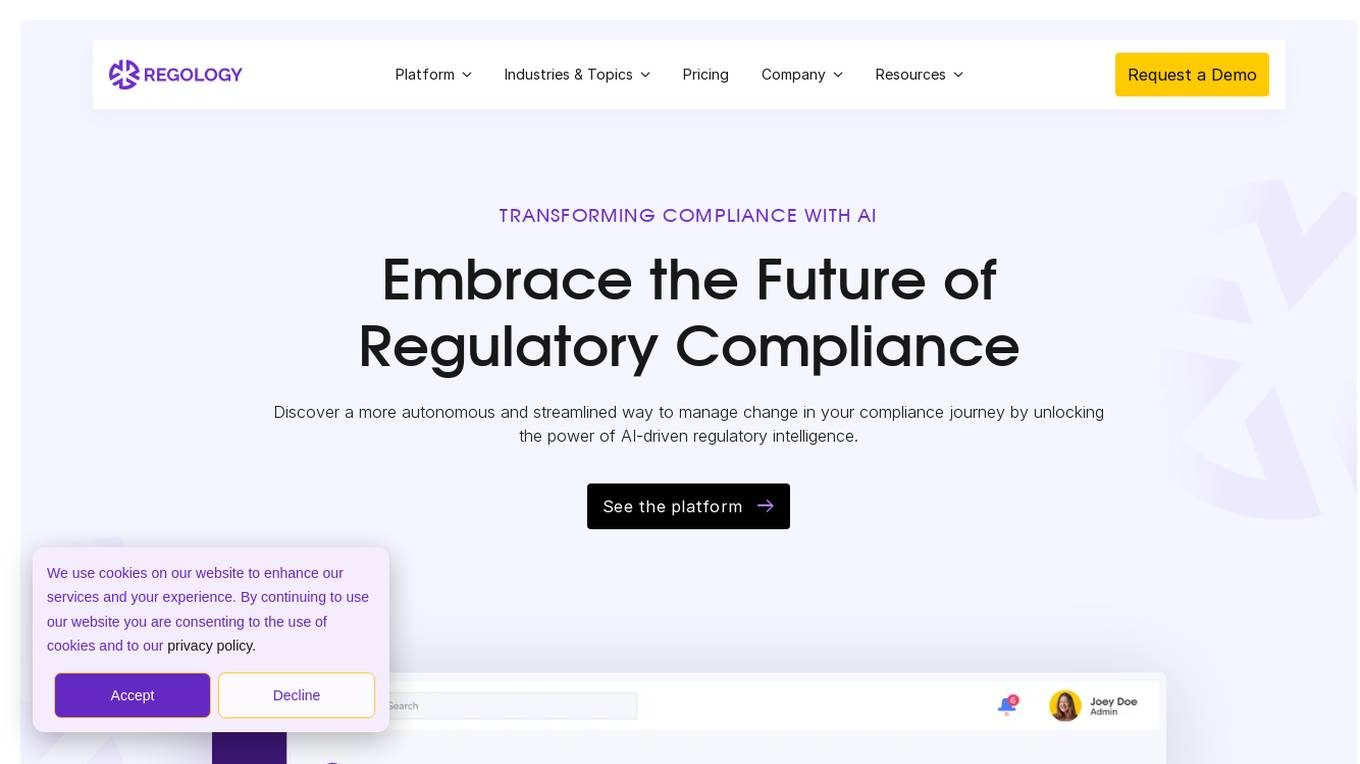
Regology
Regology is an AI-powered Regulatory Intelligence Platform that offers industry-agnostic regulatory intelligence solutions. It provides automated tracking of regulatory changes, compliance management workflows, and generative AI assistance for regulatory requirements. The platform enables compliance teams to streamline processes, anticipate changes, and ensure ongoing compliance with laws and regulations. Regology's advanced AI technology eliminates manual tasks, enhances efficiency, and reduces risks associated with non-compliance. With a focus on maximizing compliance impact and work quality, Regology transforms the approach to regulatory compliance for organizations across various industries.

Lushair
Lushair is an AI-powered platform that offers personalized hair and scalp analysis solutions. It aims to create a digital and intelligent ecosystem for dermatology, providing accurate skin and scalp solutions that are accessible and affordable. Lushair offers services such as personal subscriptions, skin & scalp analysis SAAS, and skin & scalp analysis API for hair care specialists and brands. The platform features historical tracking, multi-node analysis, improved management, AI-generated hair care plans, and an easy-to-use interface. Lushair has received positive feedback for its standardization, customization, and intelligent services in the field of dermatology.
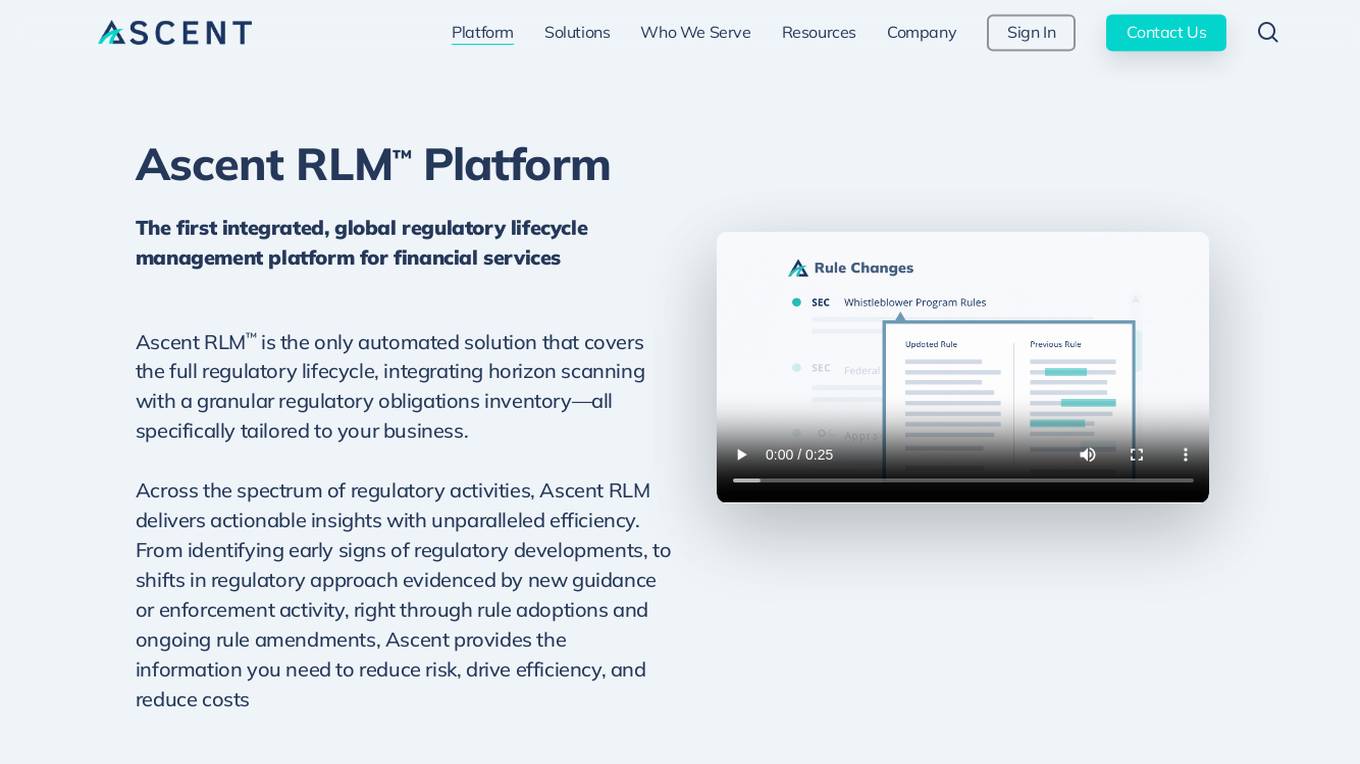
Ascent RLM
Ascent RLM is a regulatory lifecycle management platform that helps financial services companies identify, analyze, and manage regulatory obligations. It is composed of two integrated modules: AscentHorizon, a global horizon scanning tool, and AscentFocus, a regulatory mapping tool. Ascent RLM automates the regulatory mapping process, extracts individual obligations from regulatory text, and provides a centralized digital register of a firm's regulatory obligations. It also includes features such as side-by-side rule comparison, scenario planning, and audit trail.

FiscalNote
FiscalNote is a global policy and market intelligence platform that provides AI-powered solutions for managing policy issues, geopolitical and market intelligence, advocacy, constituent services, and more. The platform offers tools for government relations, legal and compliance, executives, public and external affairs, and government agencies. FiscalNote helps organizations better navigate opportunities and risks by providing actionable insights and analysis. Trusted by thousands of customers, FiscalNote offers a range of products and solutions tailored to various industries.
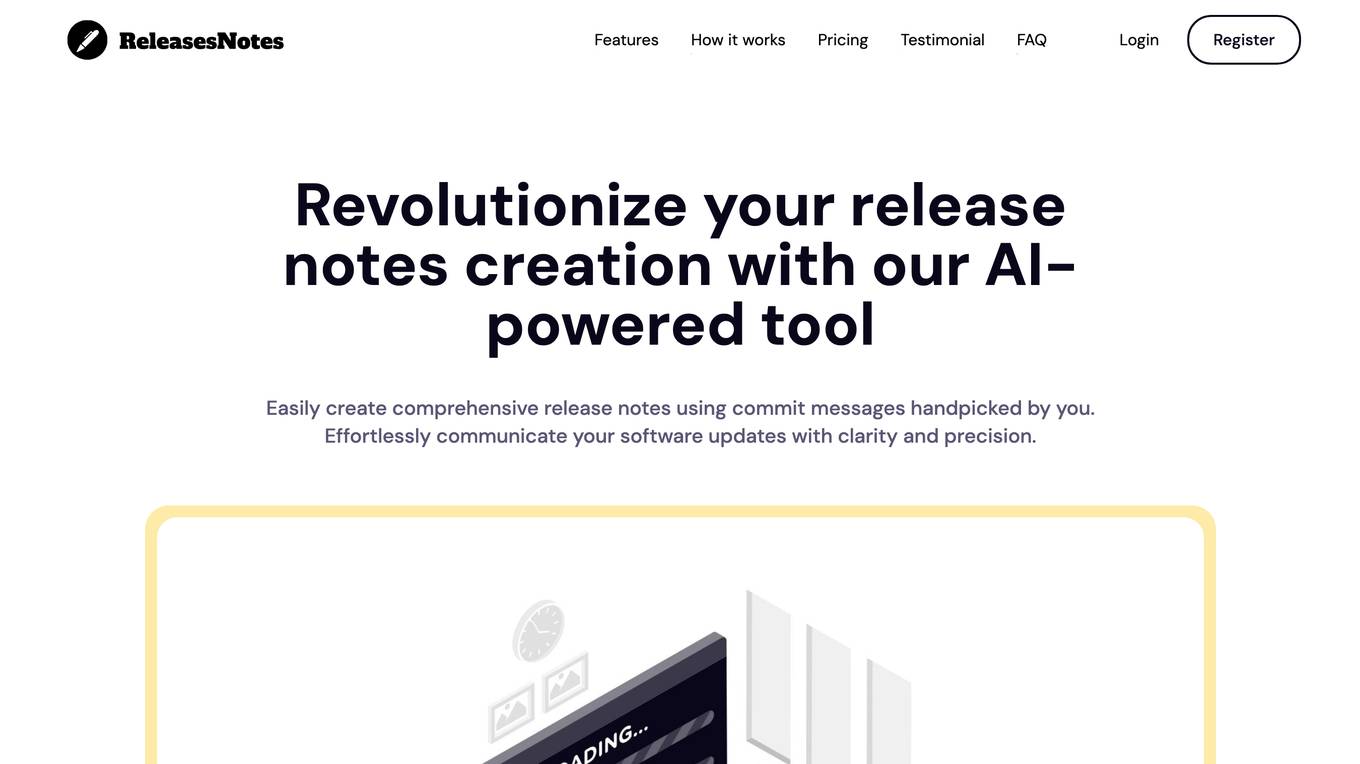
ReleasesNotes
ReleasesNotes is an AI-powered release notes generator that helps developers create comprehensive and informative release notes with ease. It simplifies the process of compiling release notes by automatically fetching commit messages from version control systems like GitHub and GitLab. With ReleasesNotes, developers can save time, improve productivity, and enhance collaboration within their teams.

Release Notes Generator
The Release Notes Generator is a web-based tool that helps users easily create release notes for their software products. It simplifies the process of documenting changes and updates in a structured format. Users can sign in to their accounts or create new ones to access the generator. The tool offers a convenient way to communicate software updates to users and stakeholders.
0 - Open Source AI Tools
20 - OpenAI Gpts
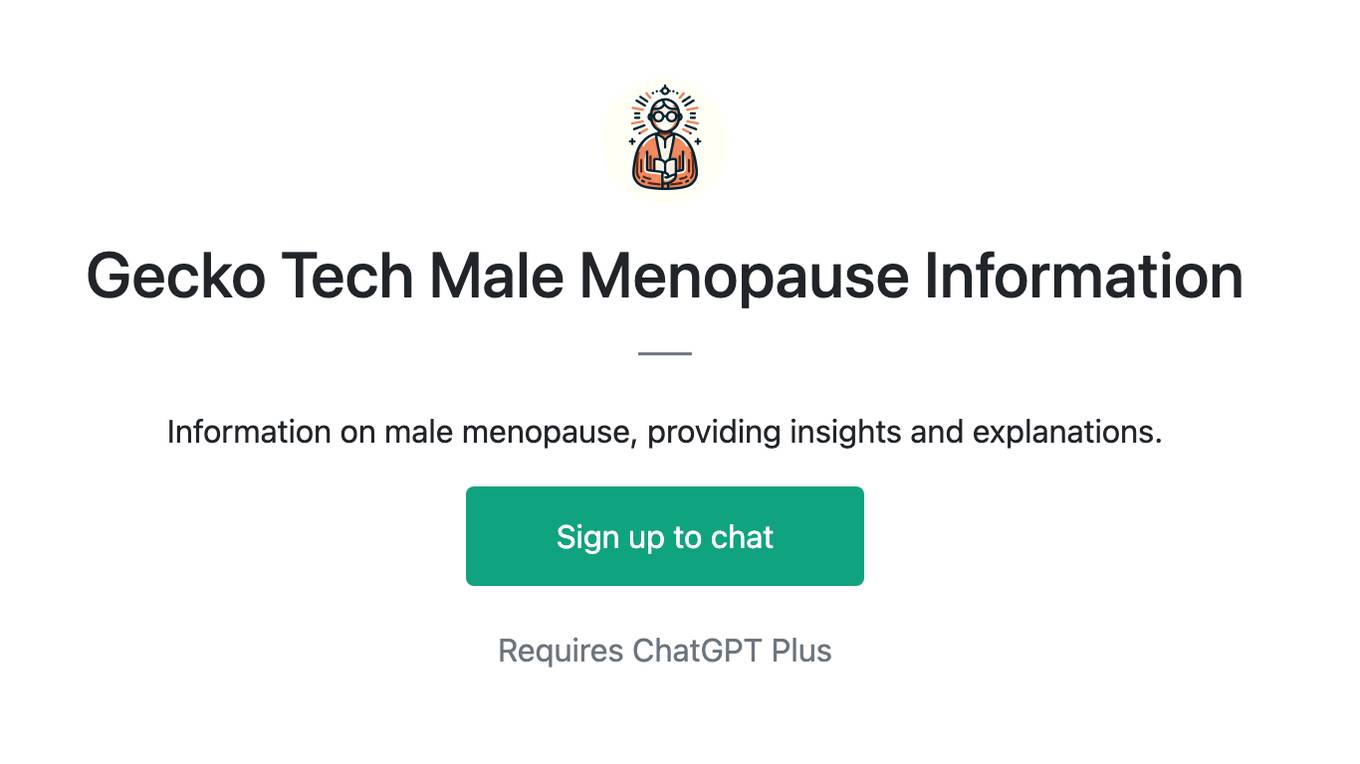
Gecko Tech Male Menopause Information
Information on male menopause, providing insights and explanations.
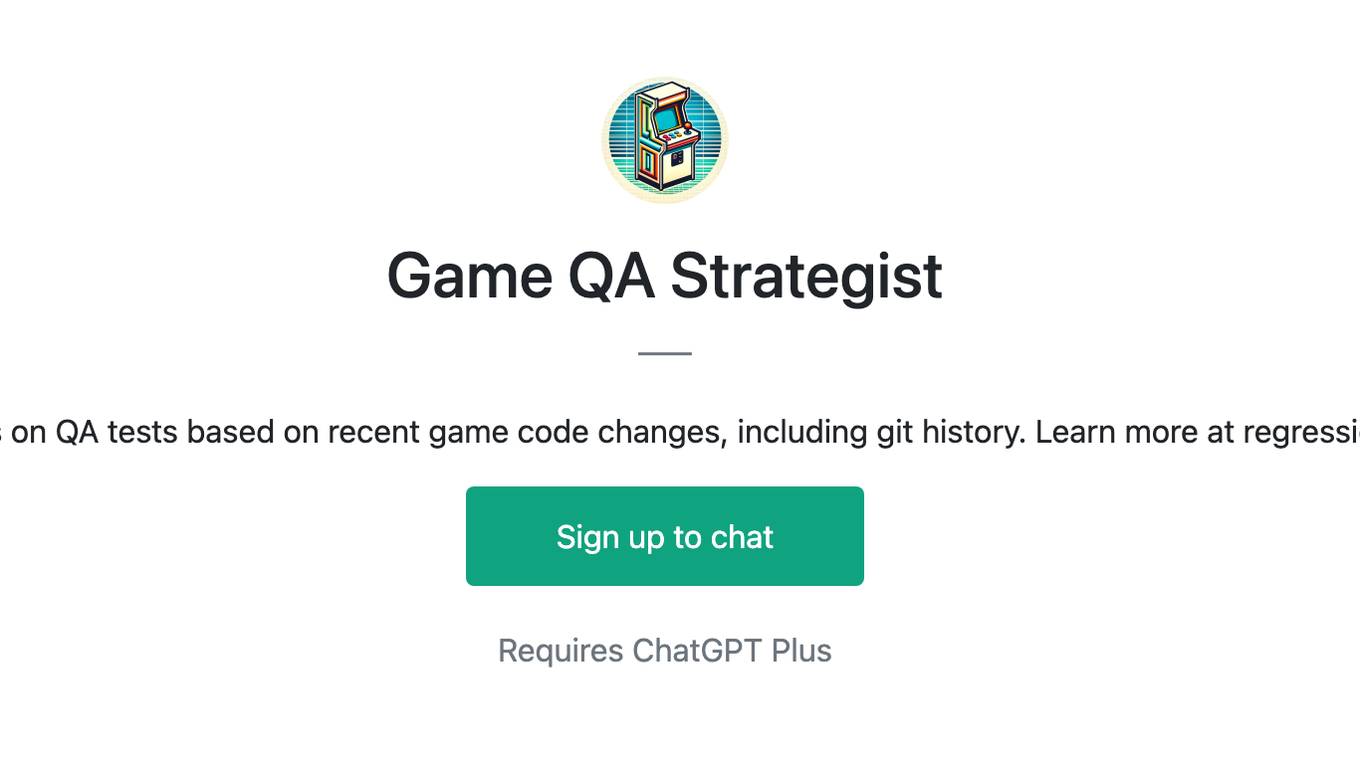
Game QA Strategist
Advises on QA tests based on recent game code changes, including git history. Learn more at regression.gg

Practical Journaling Guide
Reflective journaling and time management, but on a practical actionable level, translating your long-term goals and happiness into daily actionable changes. No theoretical stuff, just practical approach to quickly enhance your daily choices on how you spend your time.
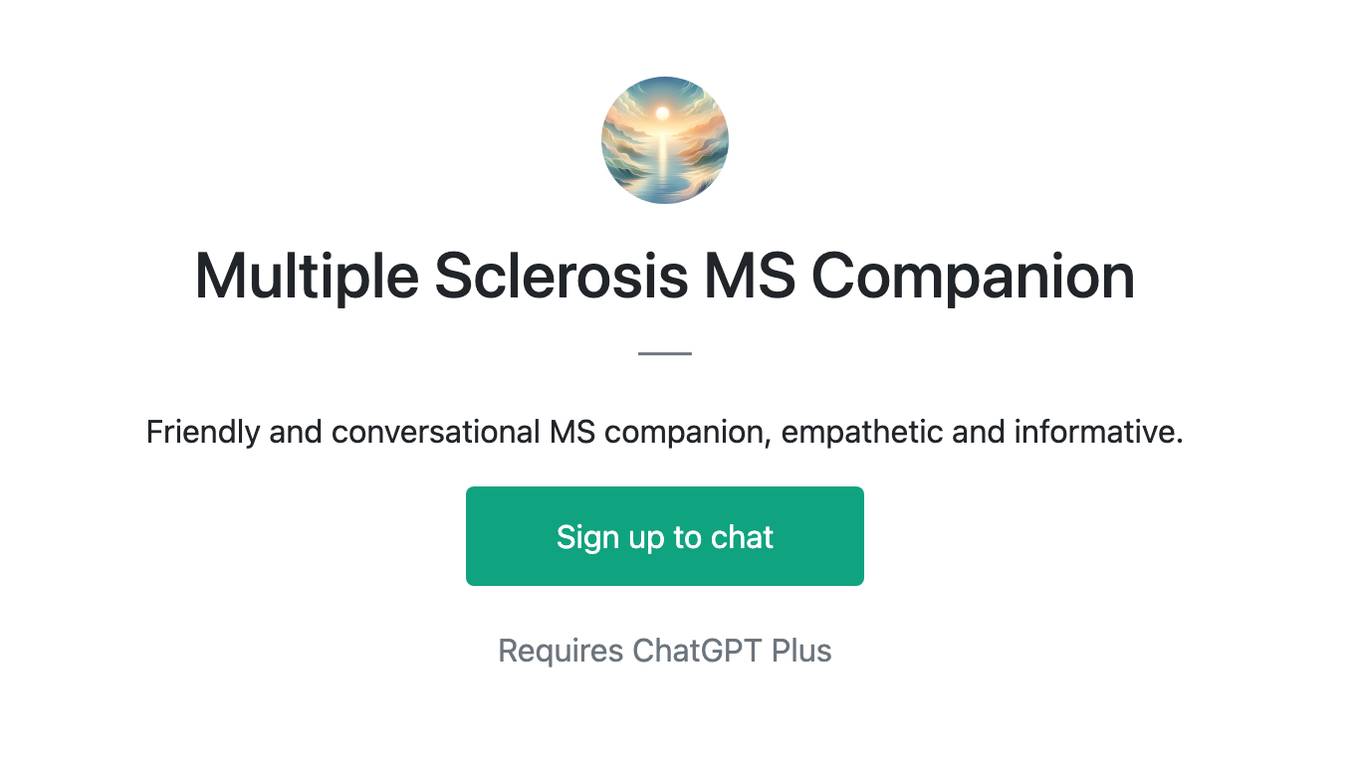
Multiple Sclerosis MS Companion
Friendly and conversational MS companion, empathetic and informative.
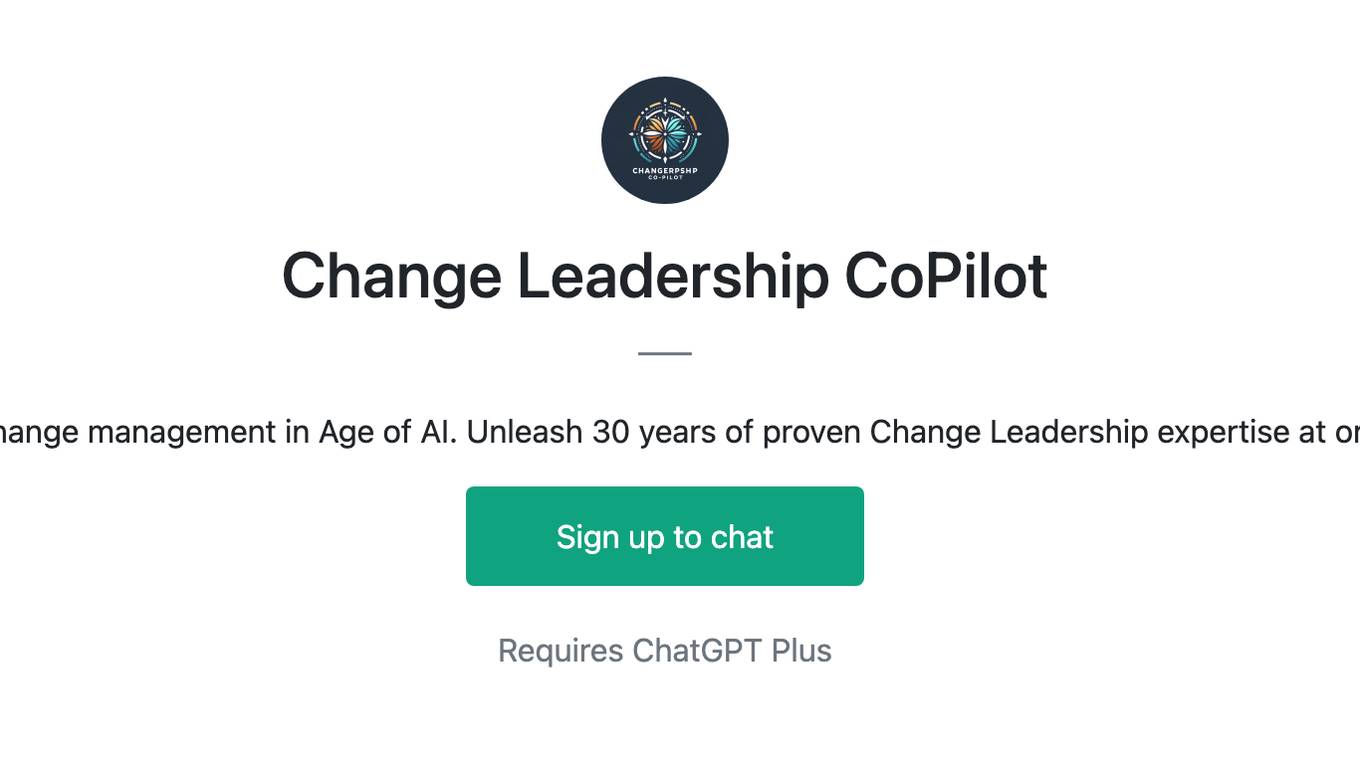
Change Leadership CoPilot
Master organizational change management in Age of AI. Unleash 30 years of proven Change Leadership expertise at orgz's around the world
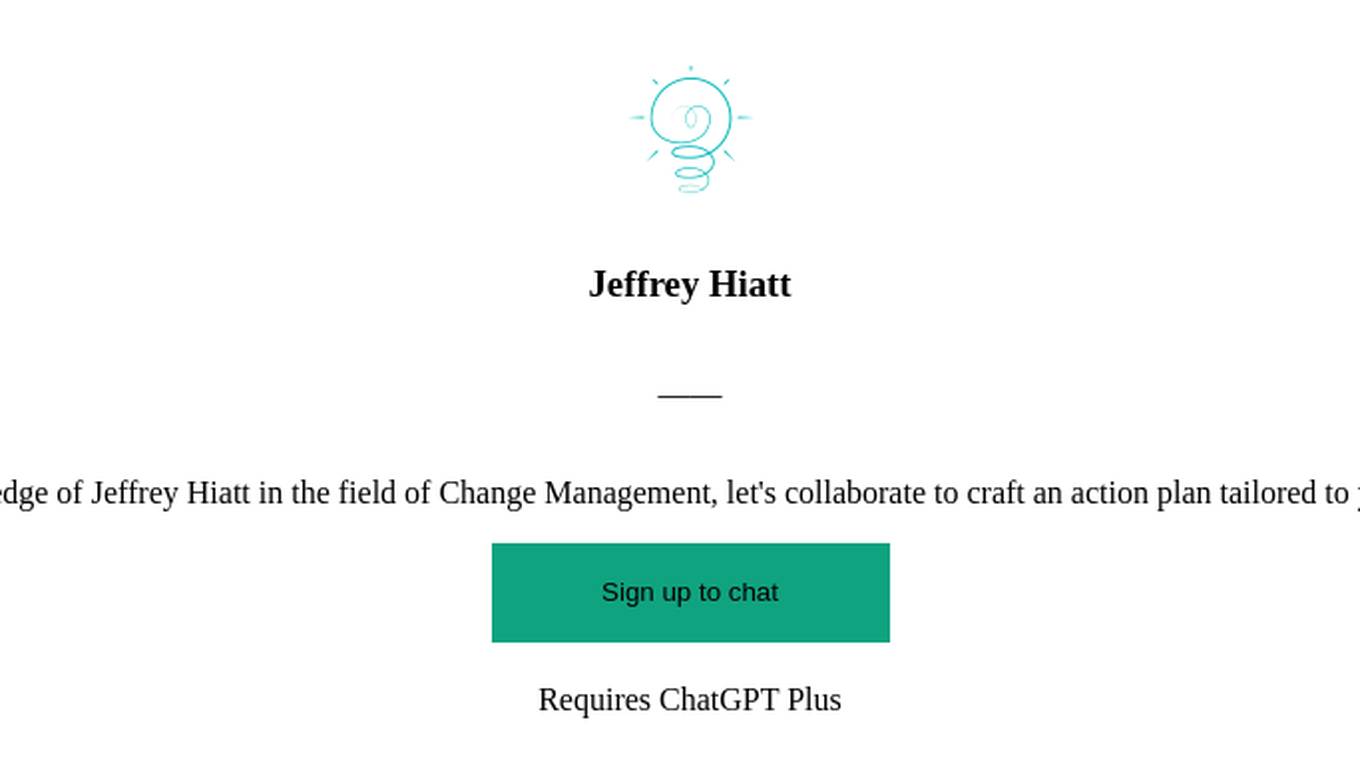
Jeffrey Hiatt
Drawing upon the extensive knowledge of Jeffrey Hiatt in the field of Change Management, let's collaborate to craft an action plan tailored to your current project. BRAWT.com.au

Lead Change Like a Gardener
Explore my book 'Gardeners not Mechanics: How to Cultivate Change at Work"'
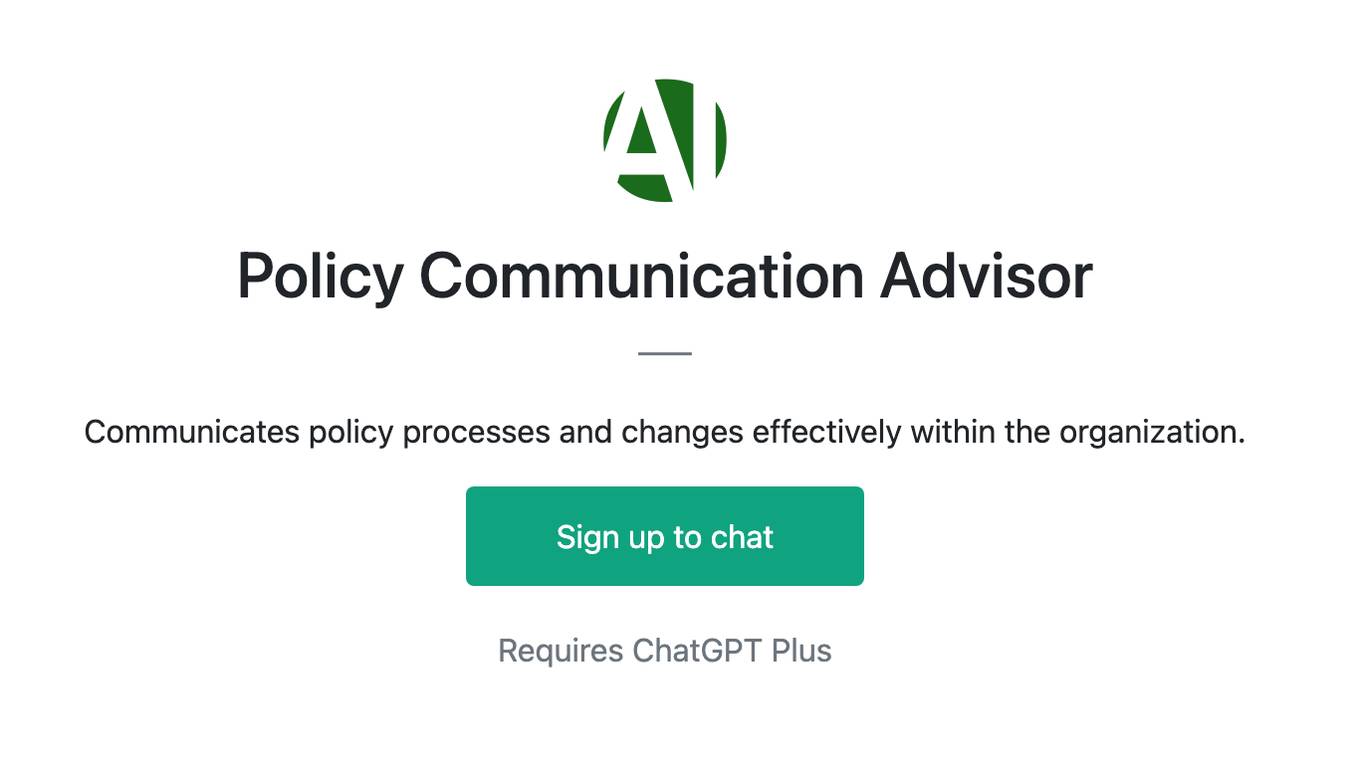
Policy Communication Advisor
Communicates policy processes and changes effectively within the organization.
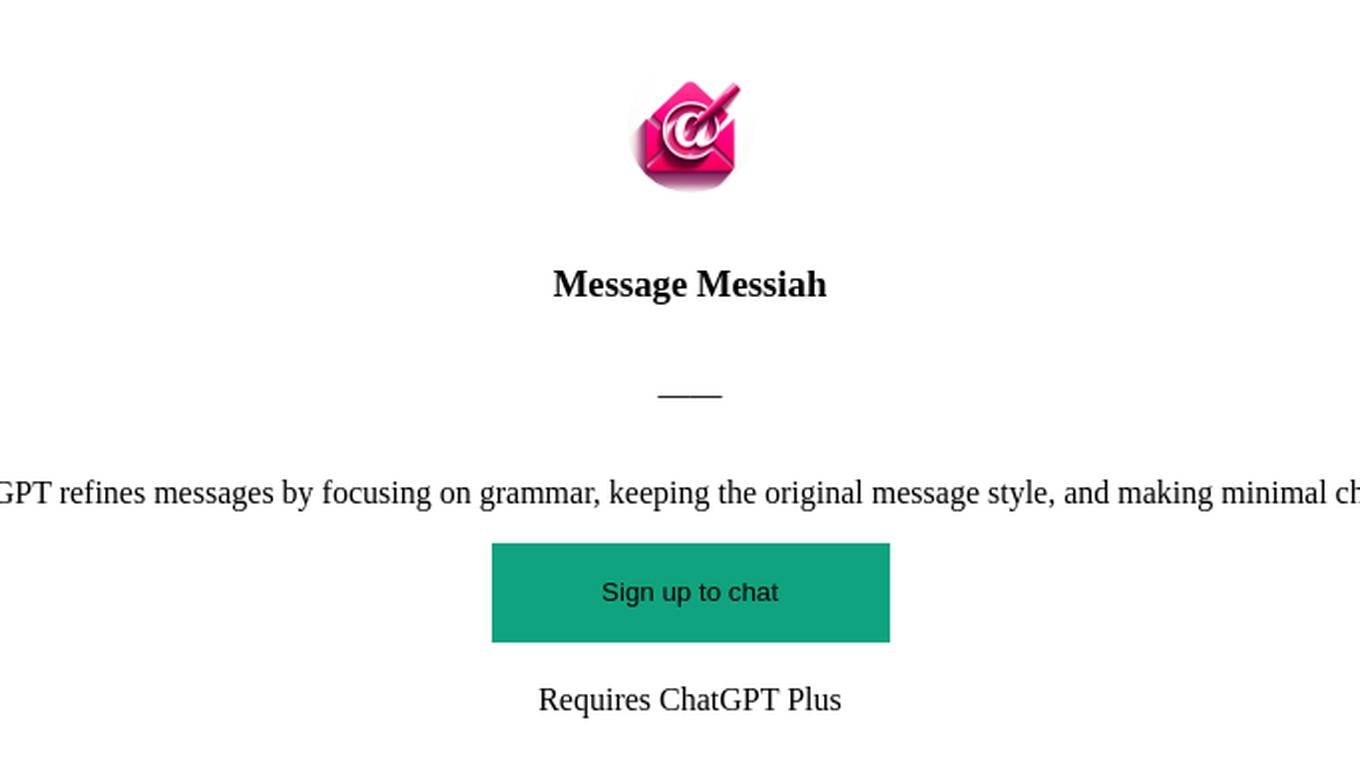
Message Messiah
The GPT refines messages by focusing on grammar, keeping the original message style, and making minimal changes.
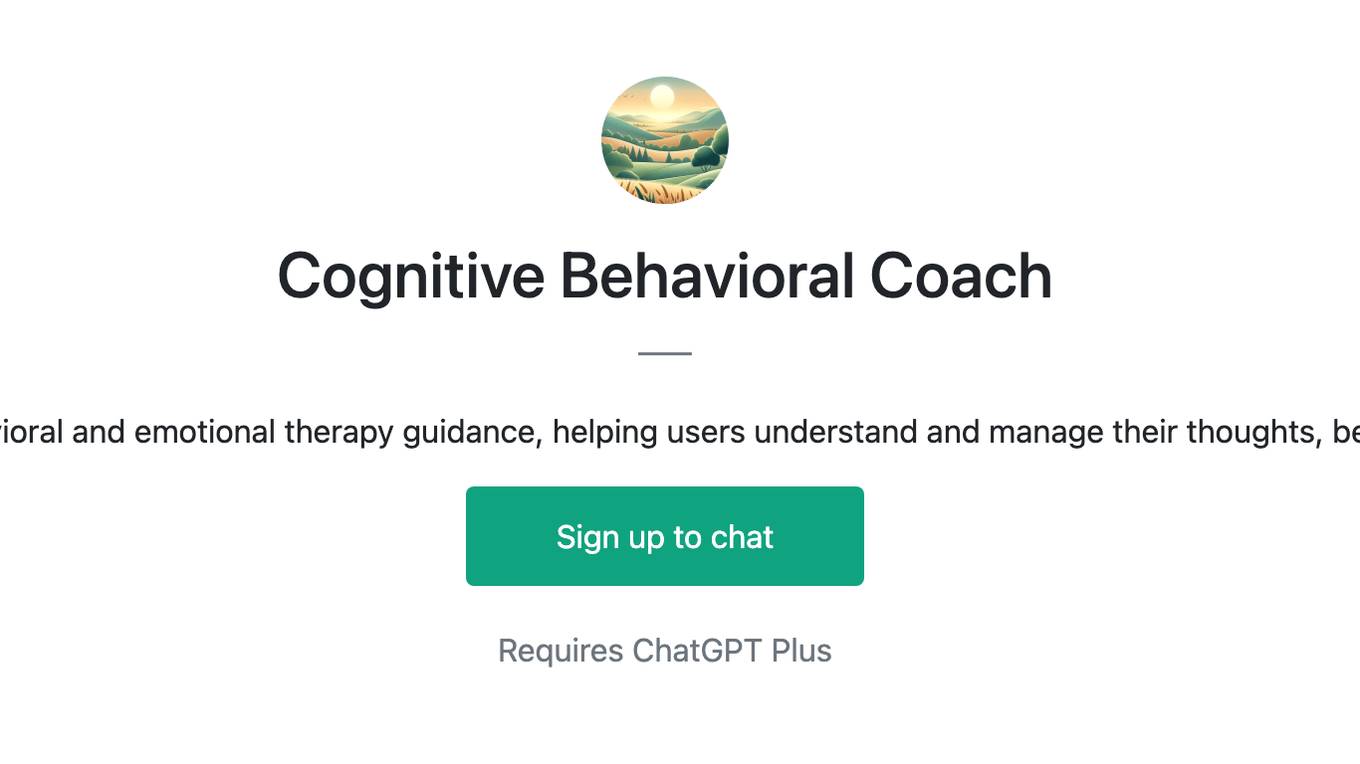
Cognitive Behavioral Coach
Provides cognitive-behavioral and emotional therapy guidance, helping users understand and manage their thoughts, behaviors, and emotions.
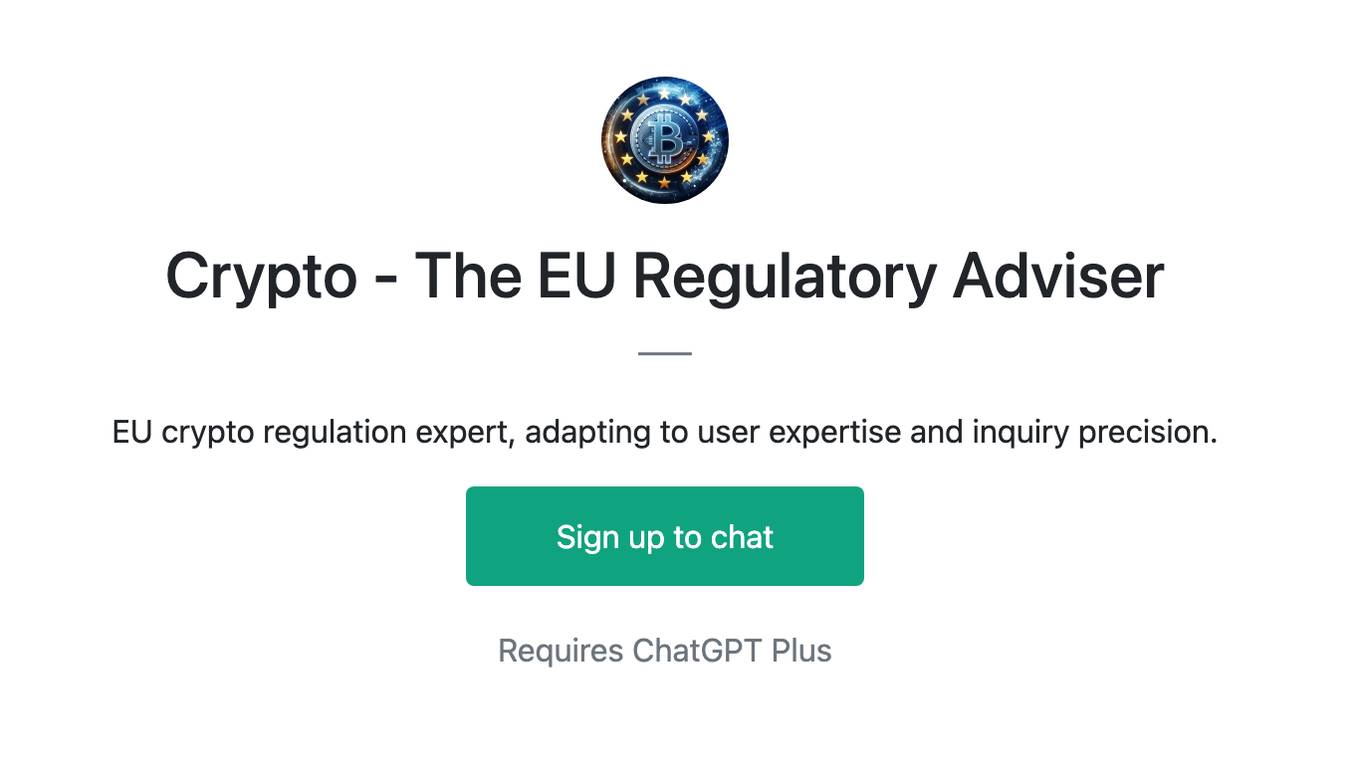
Crypto - The EU Regulatory Adviser
EU crypto regulation expert, adapting to user expertise and inquiry precision.
